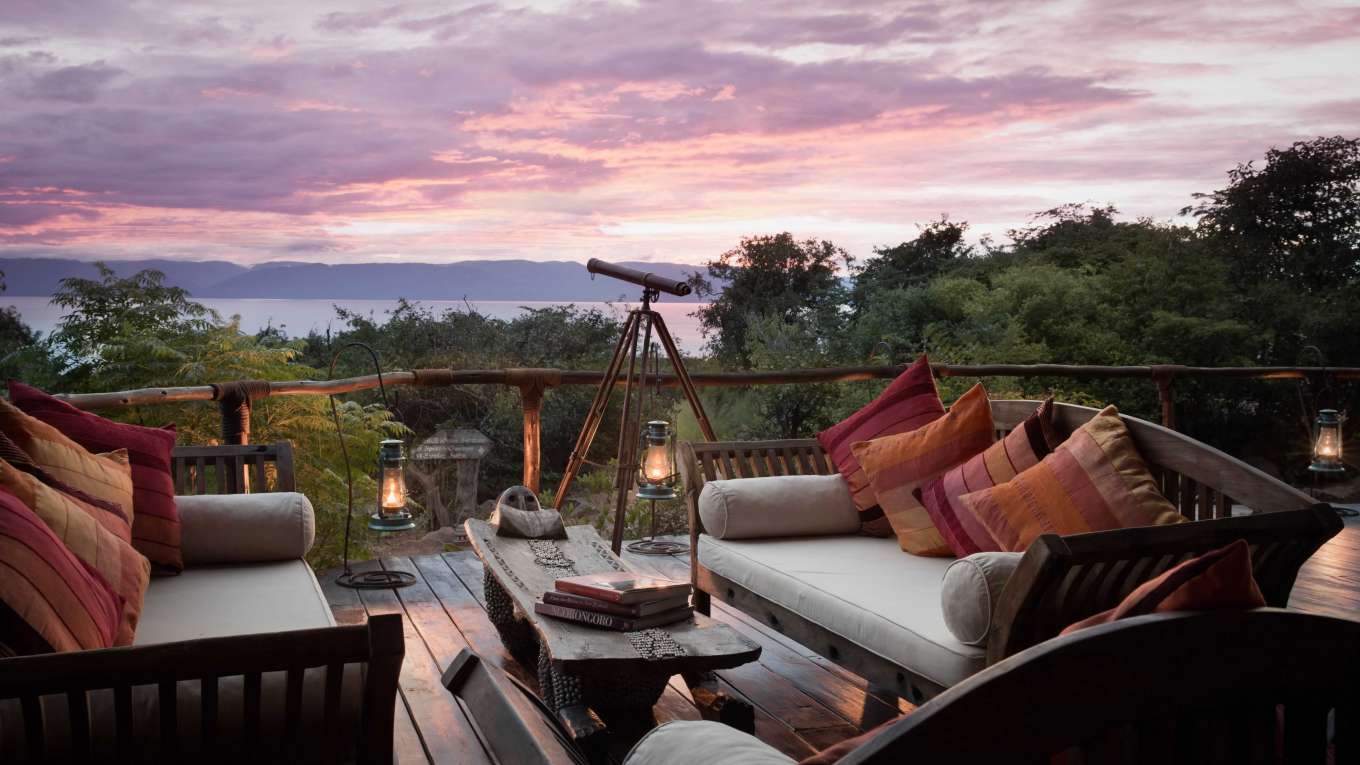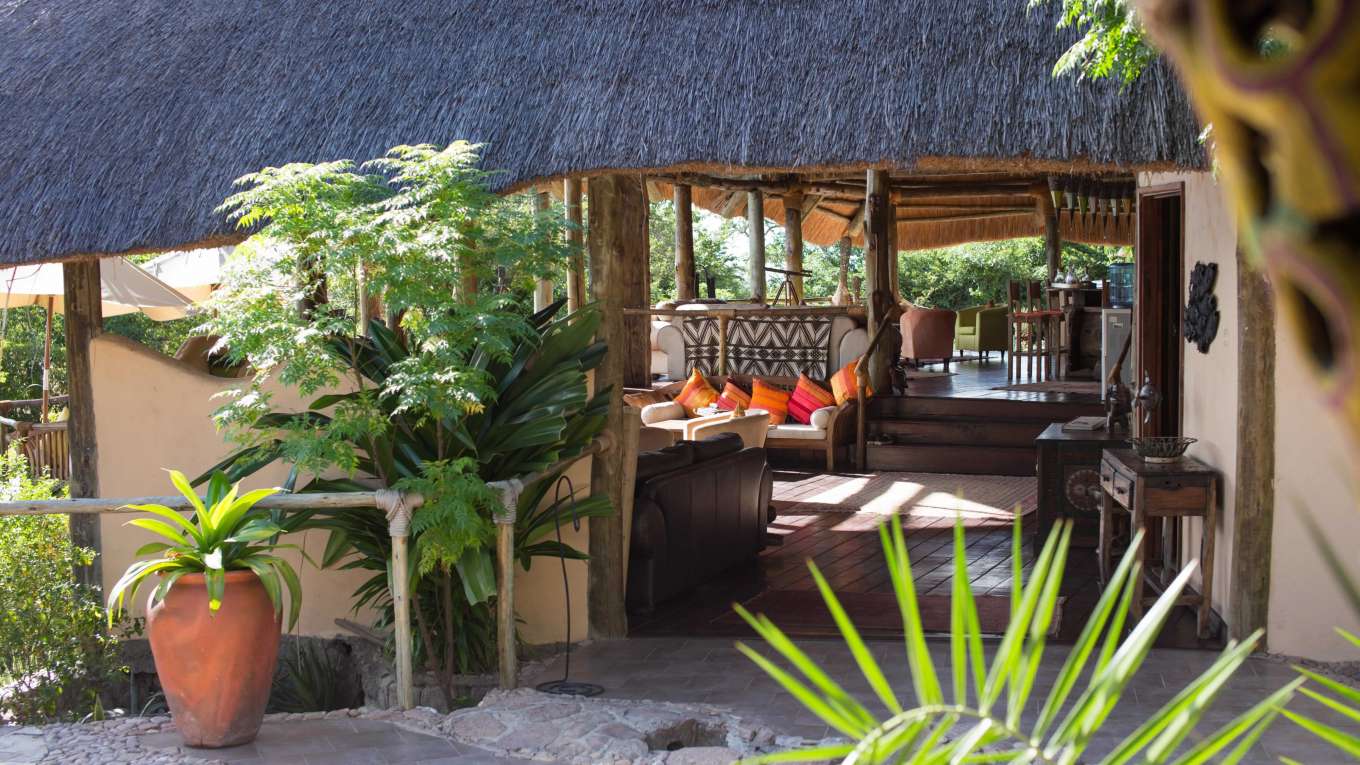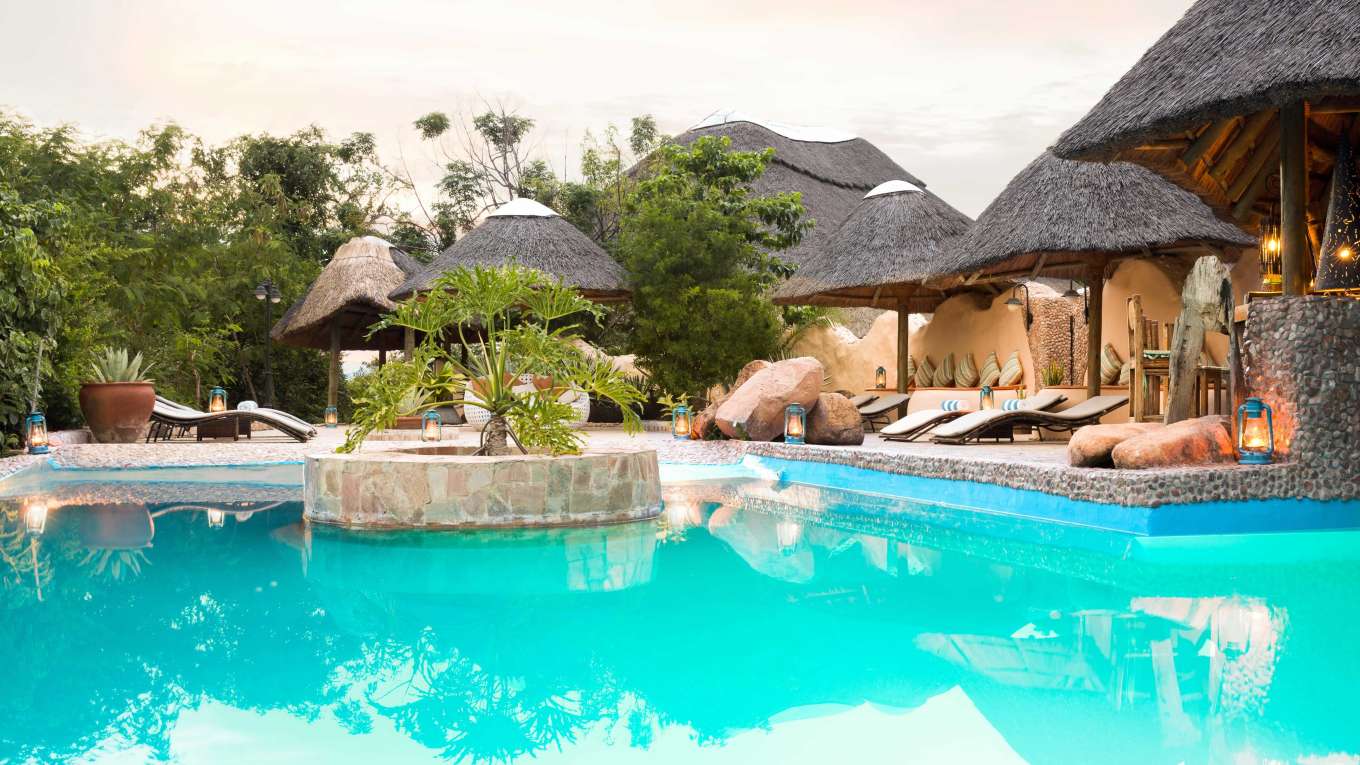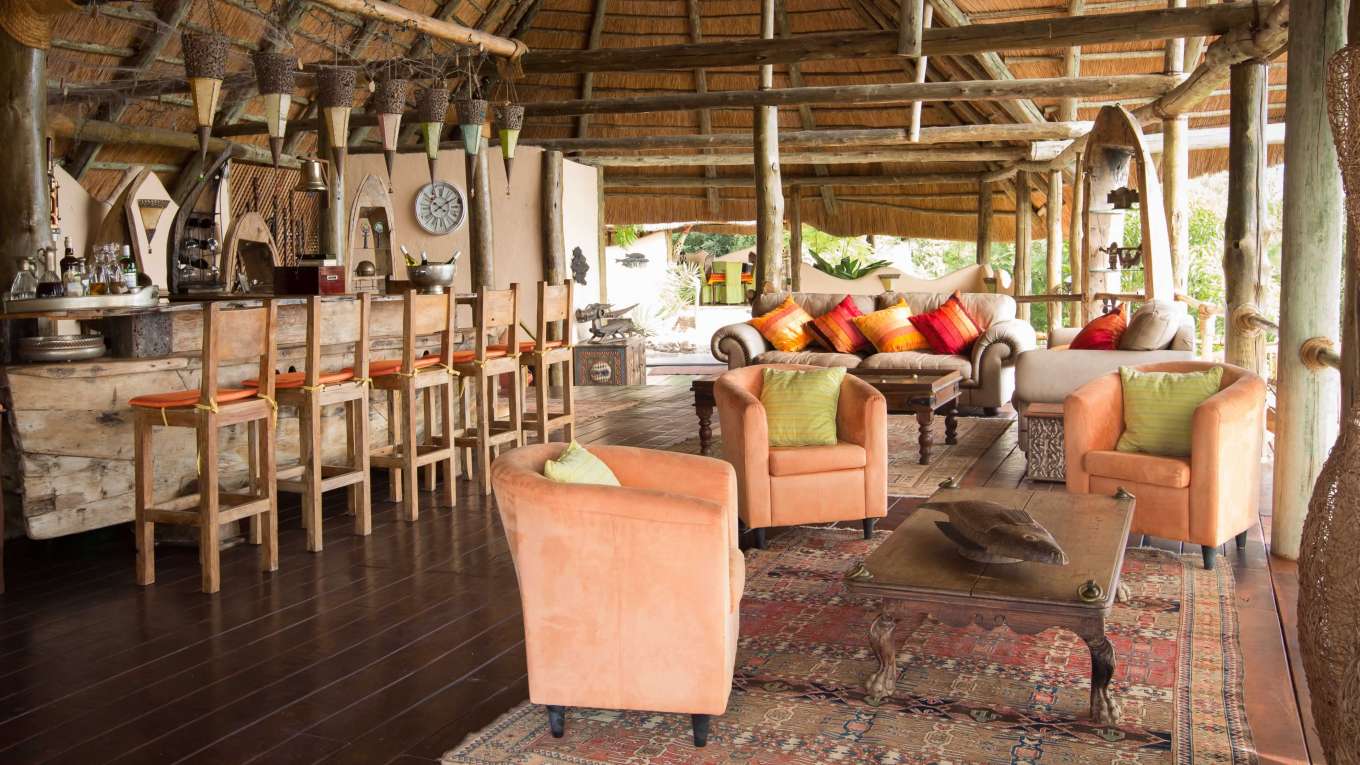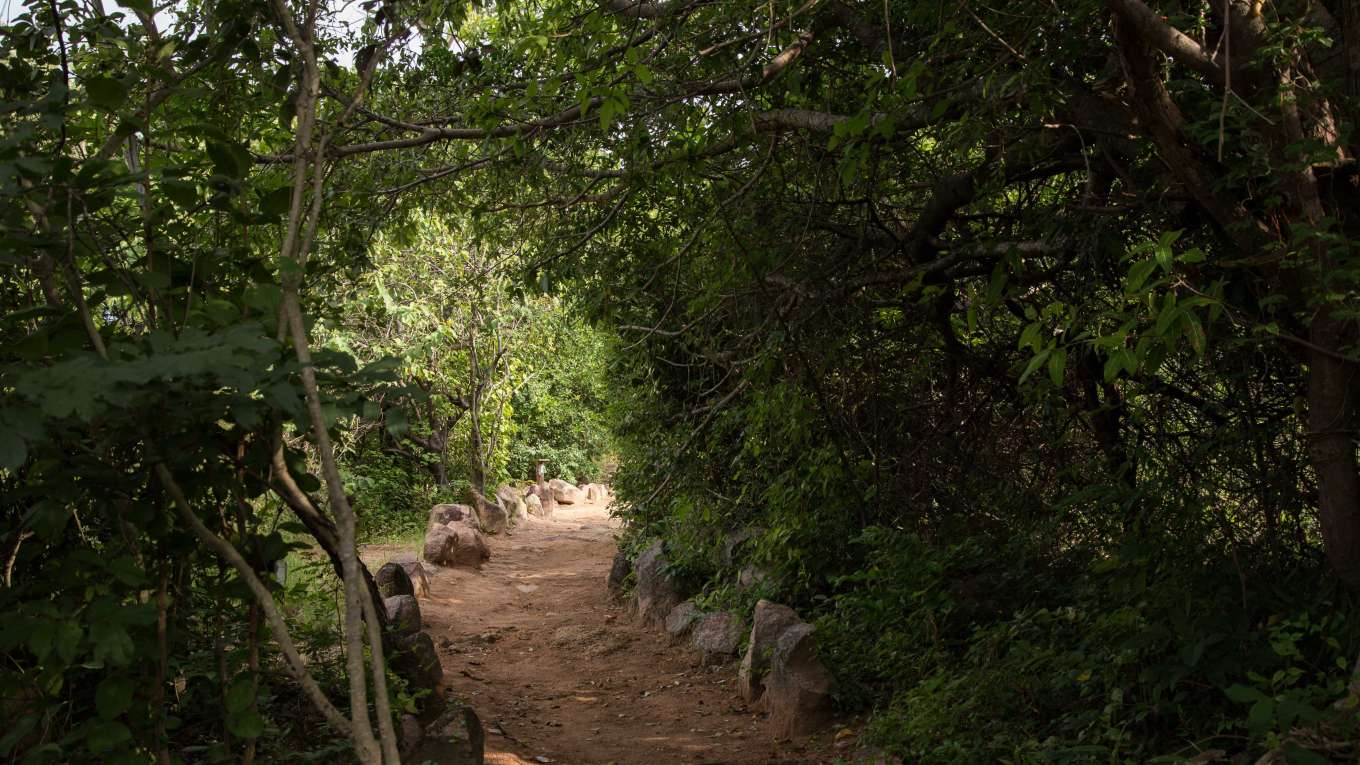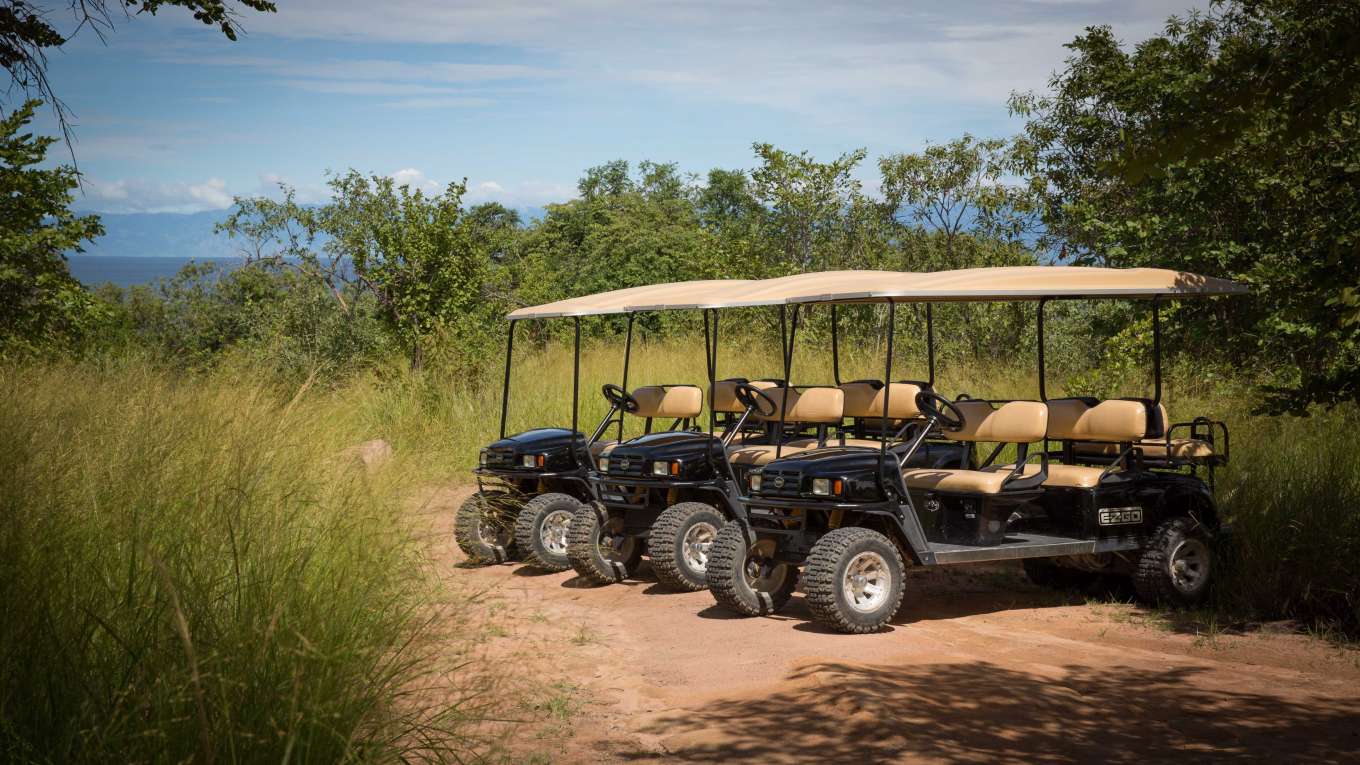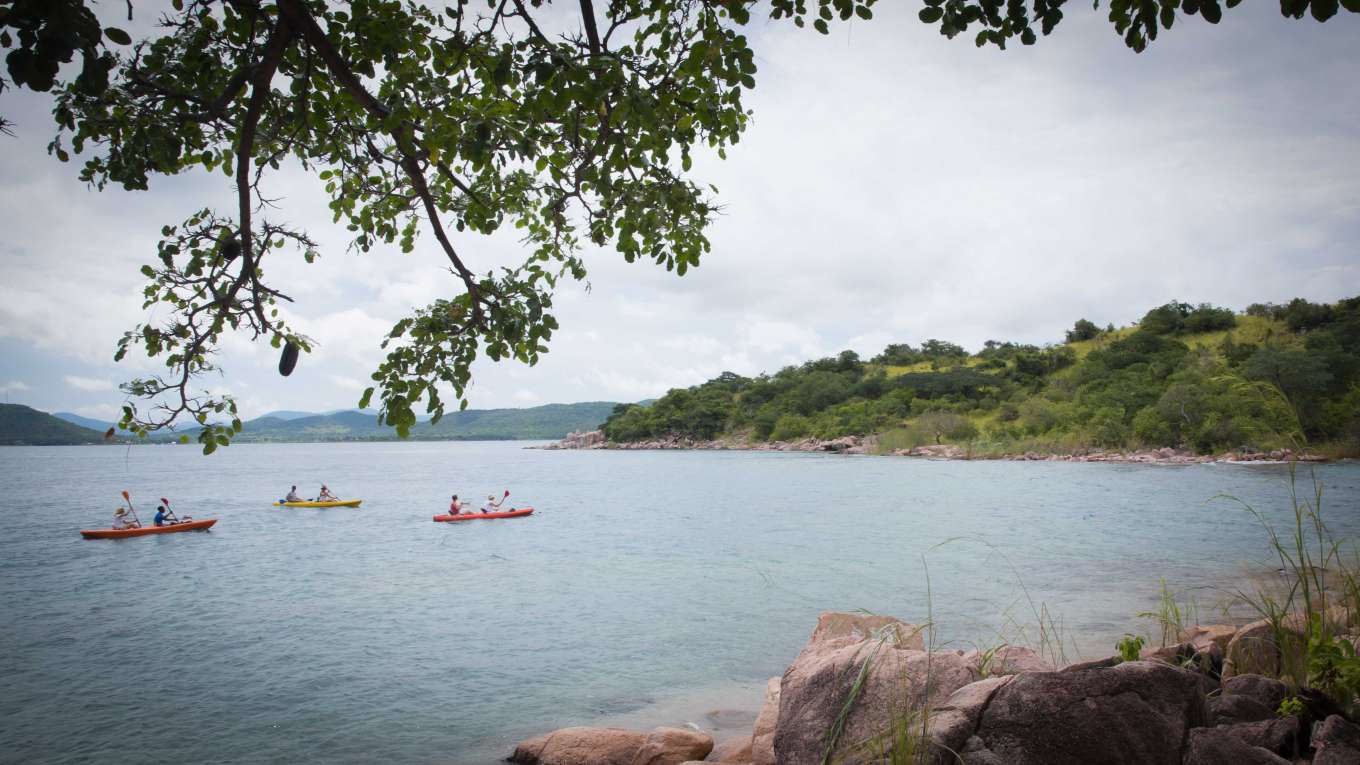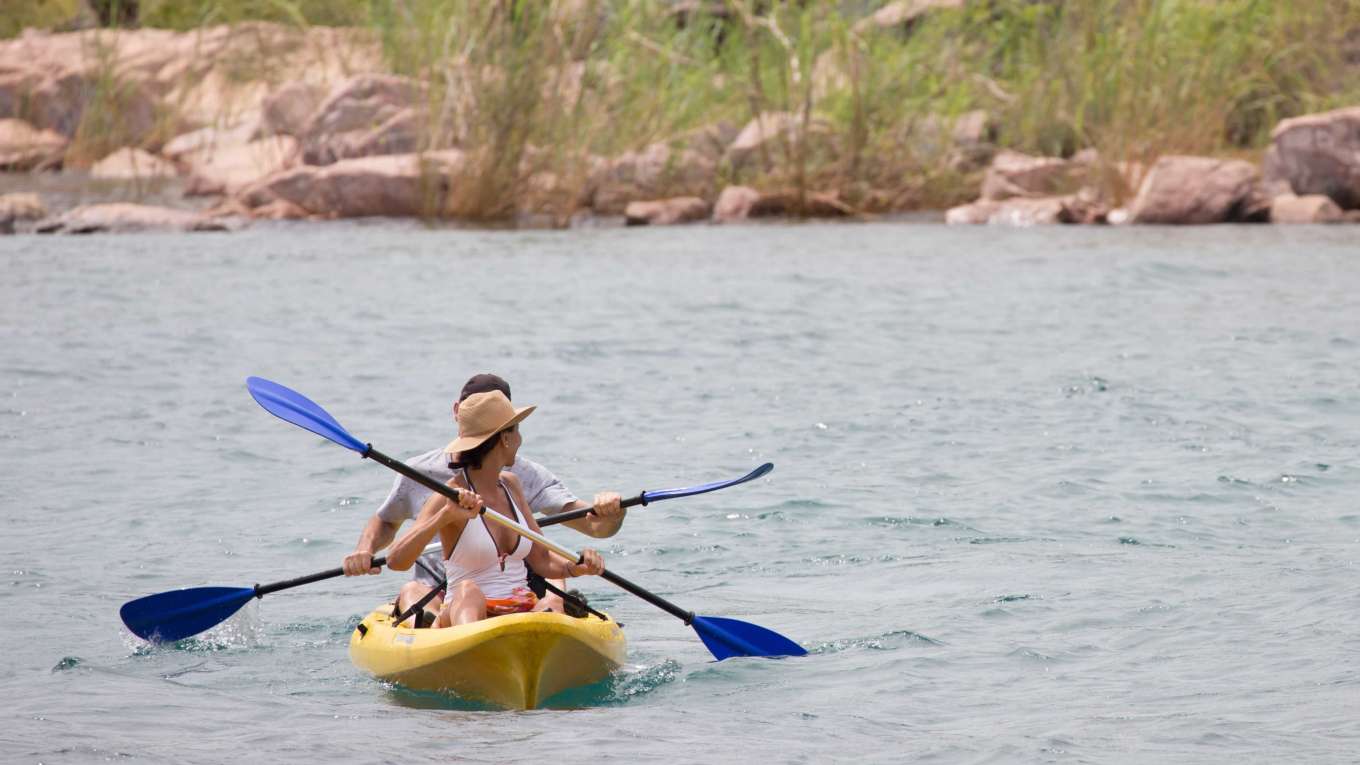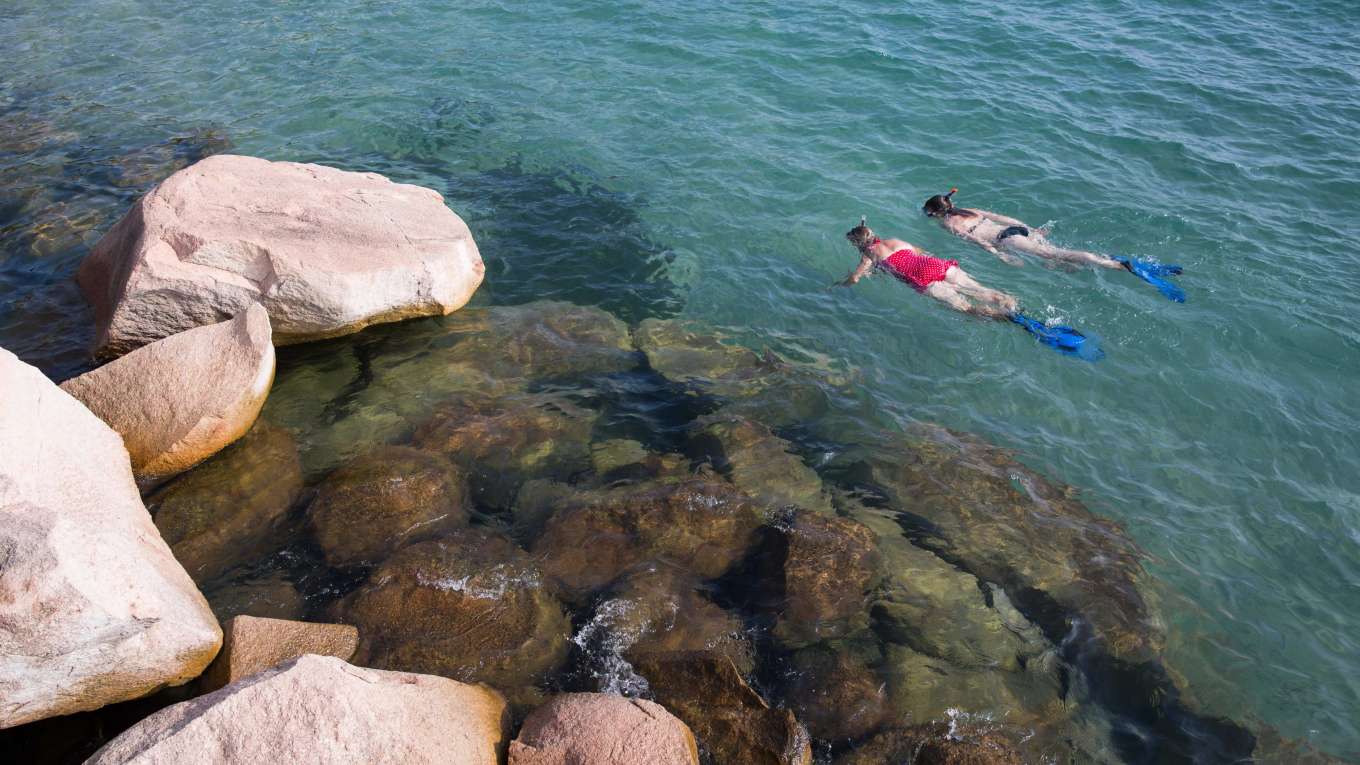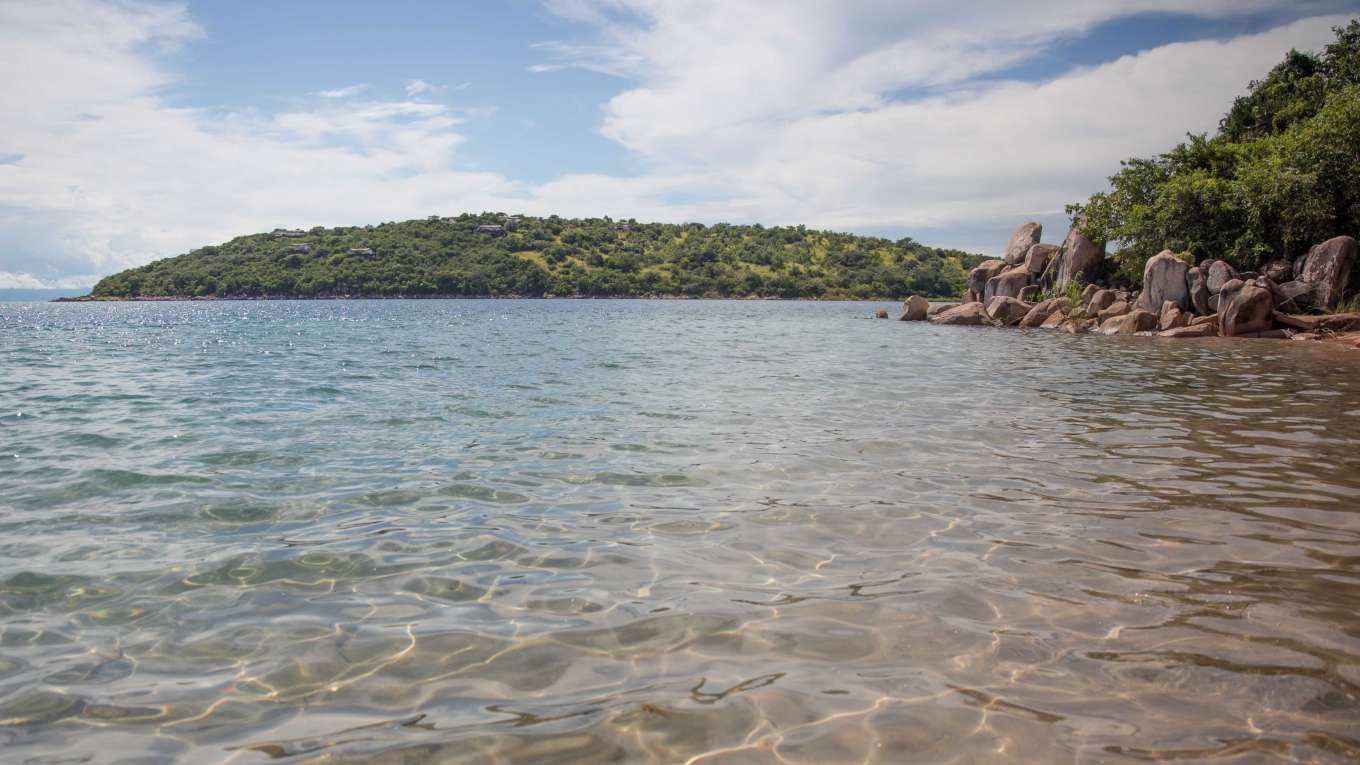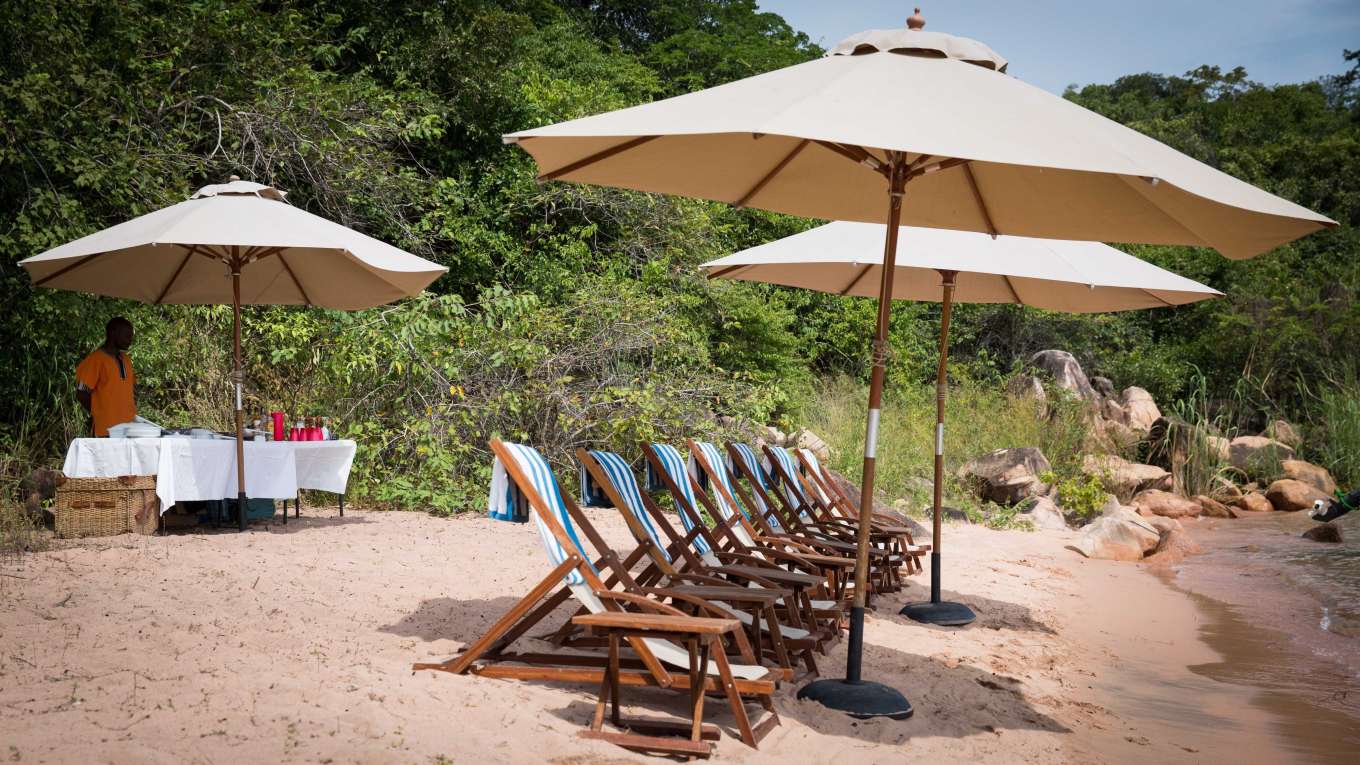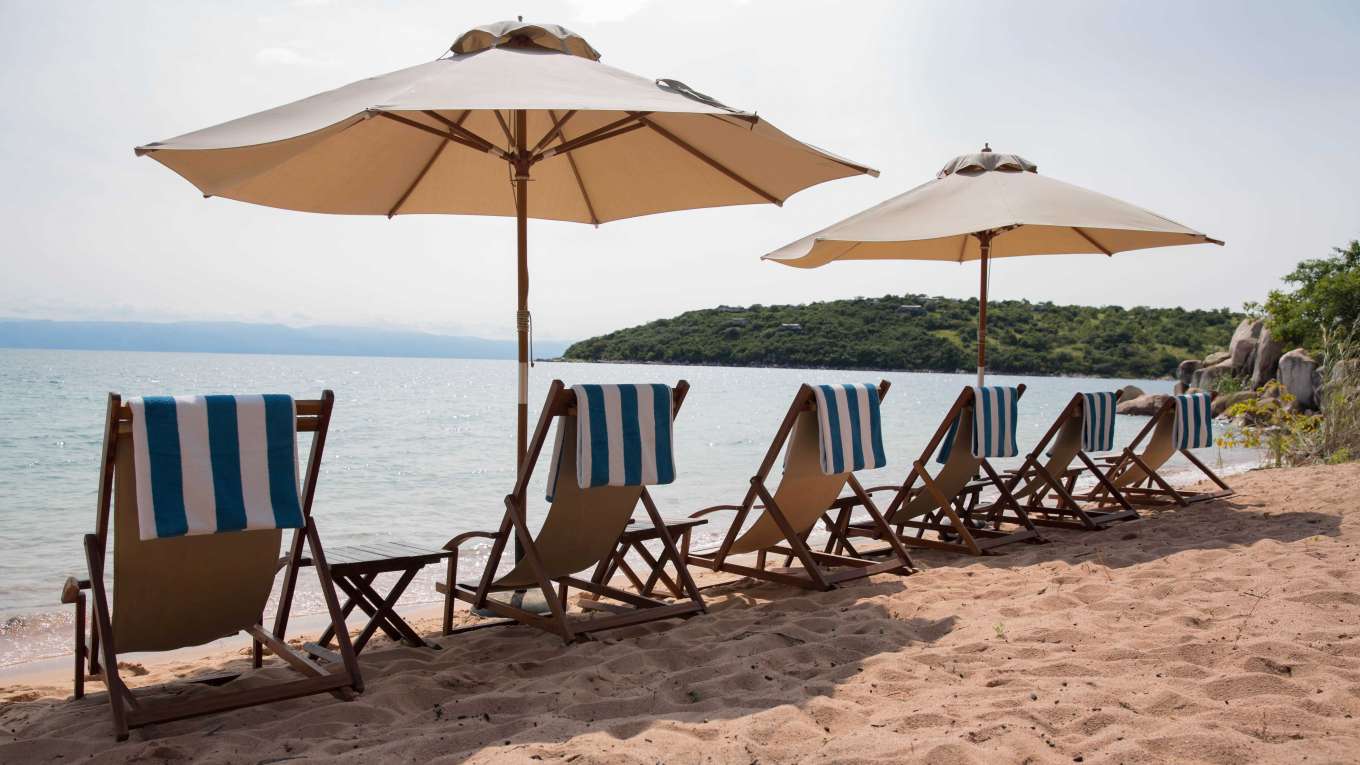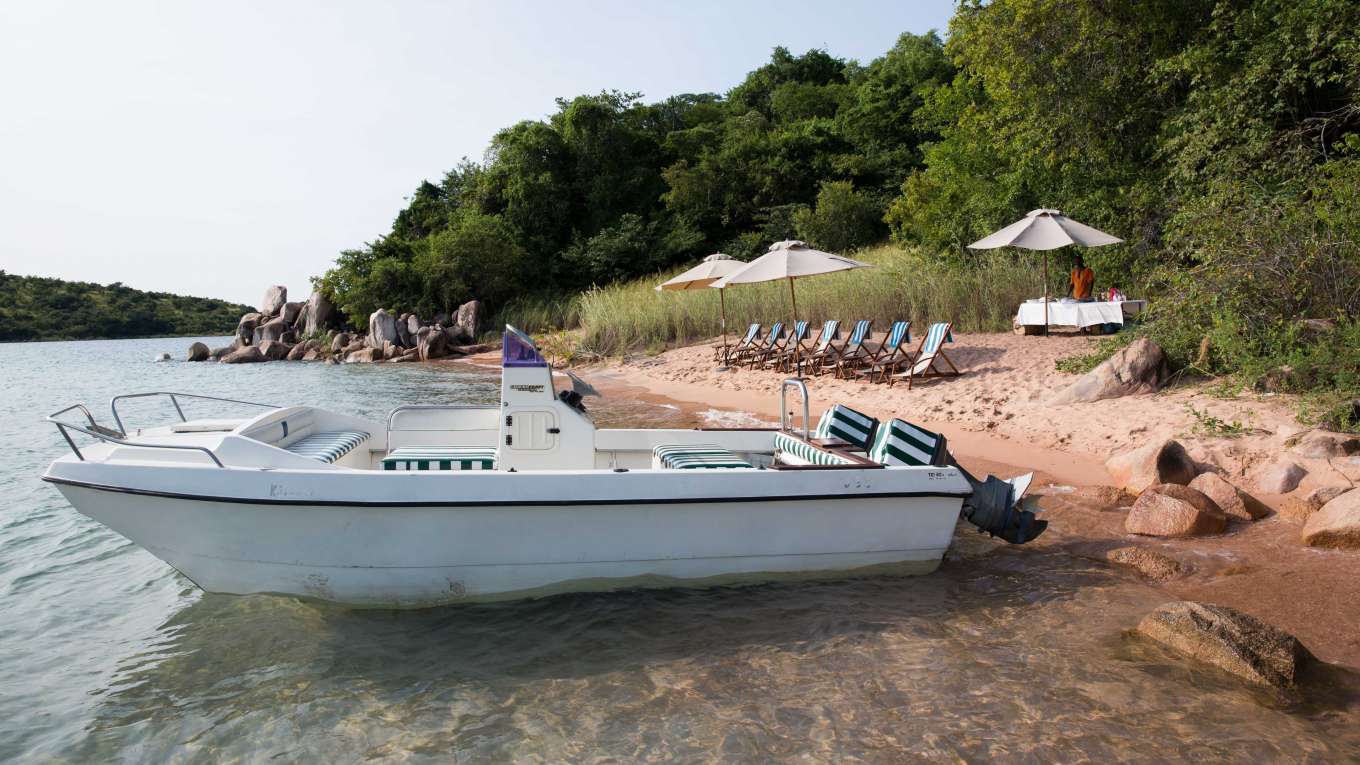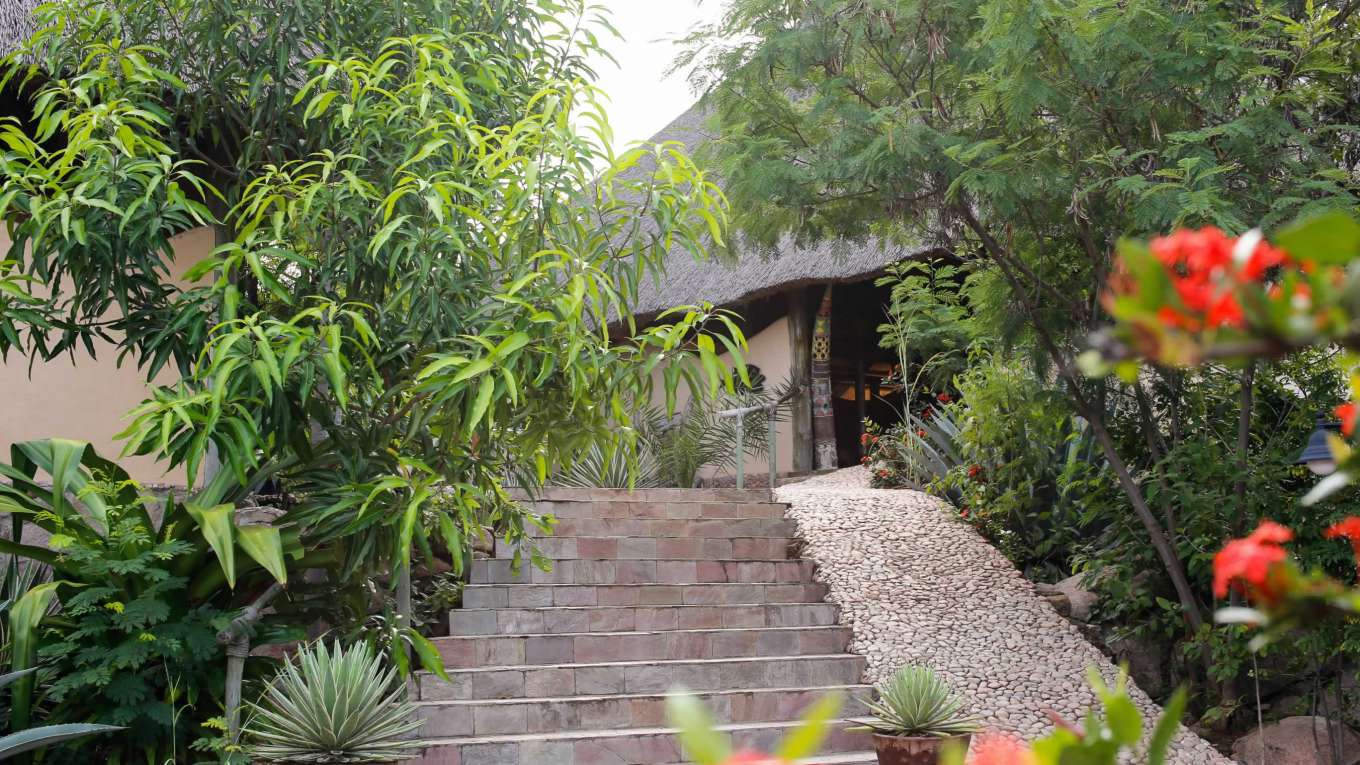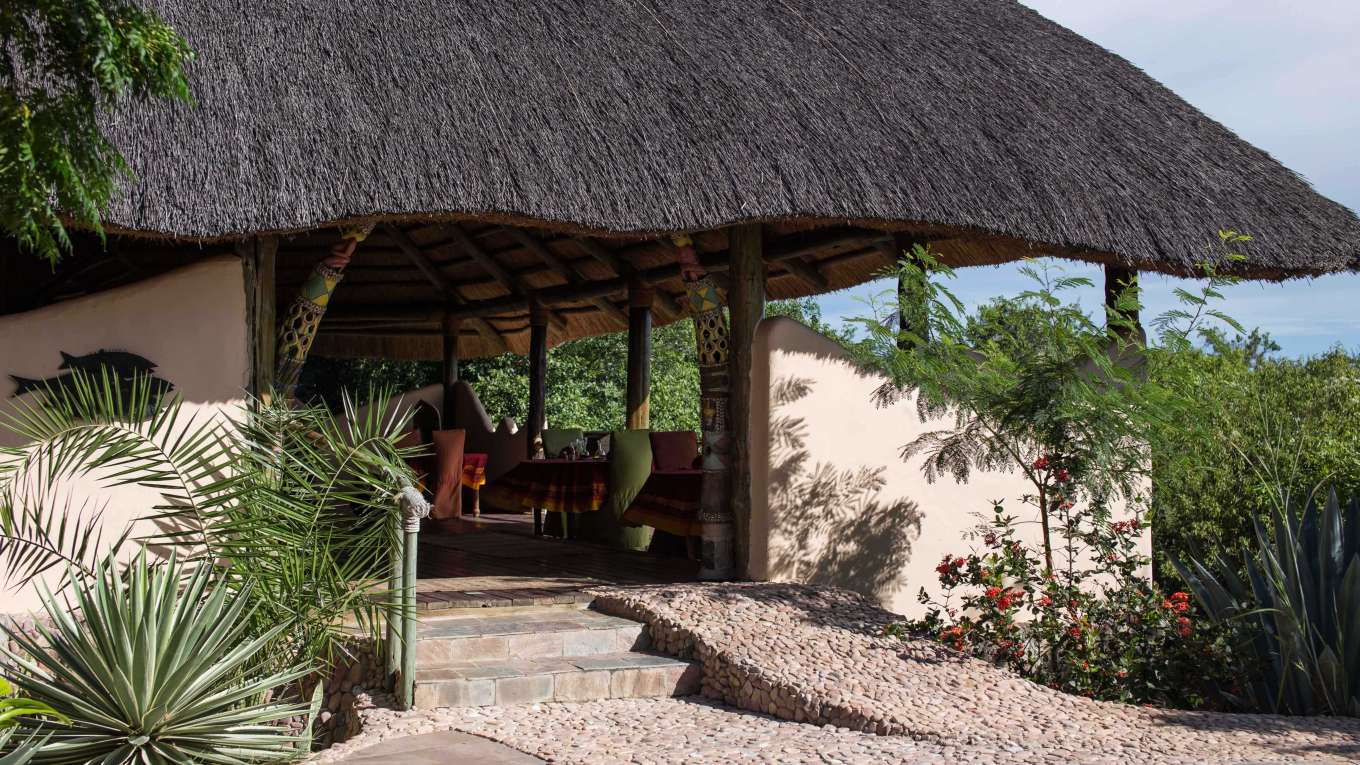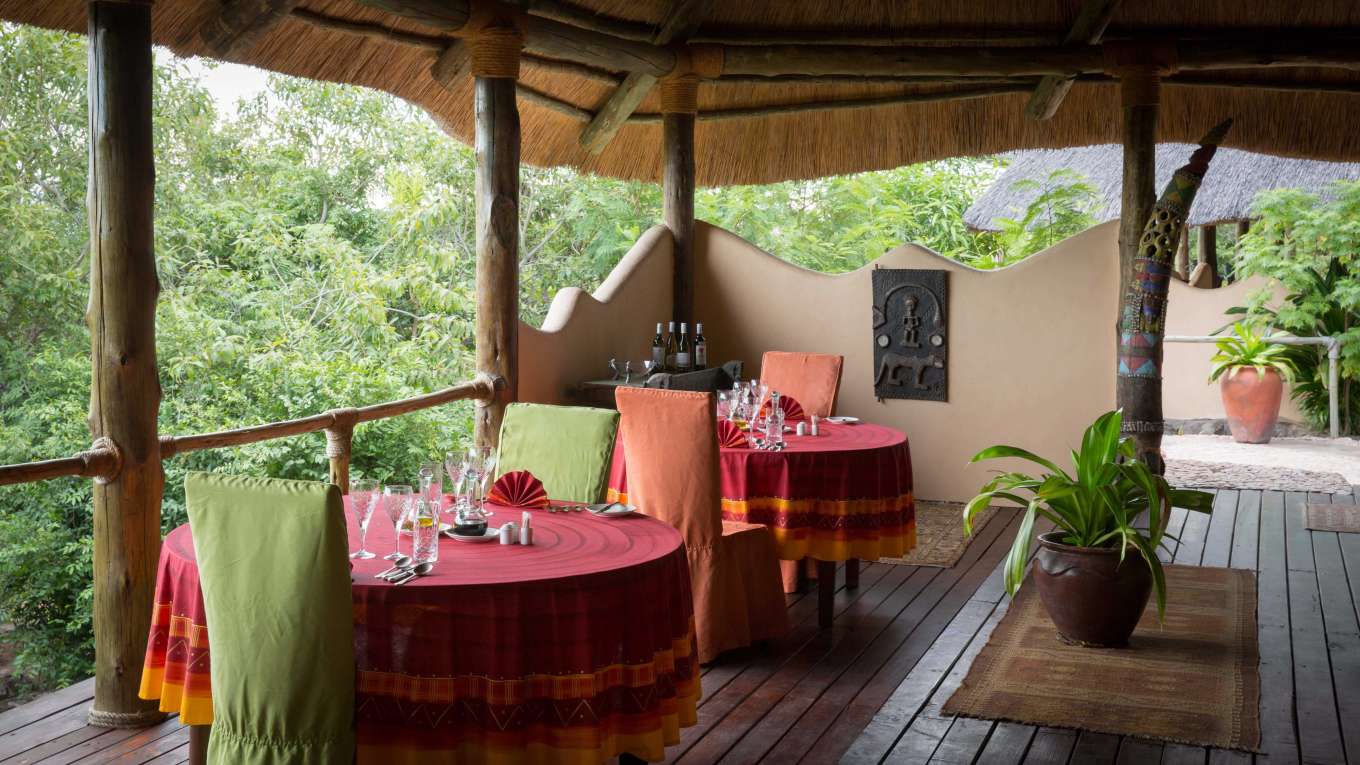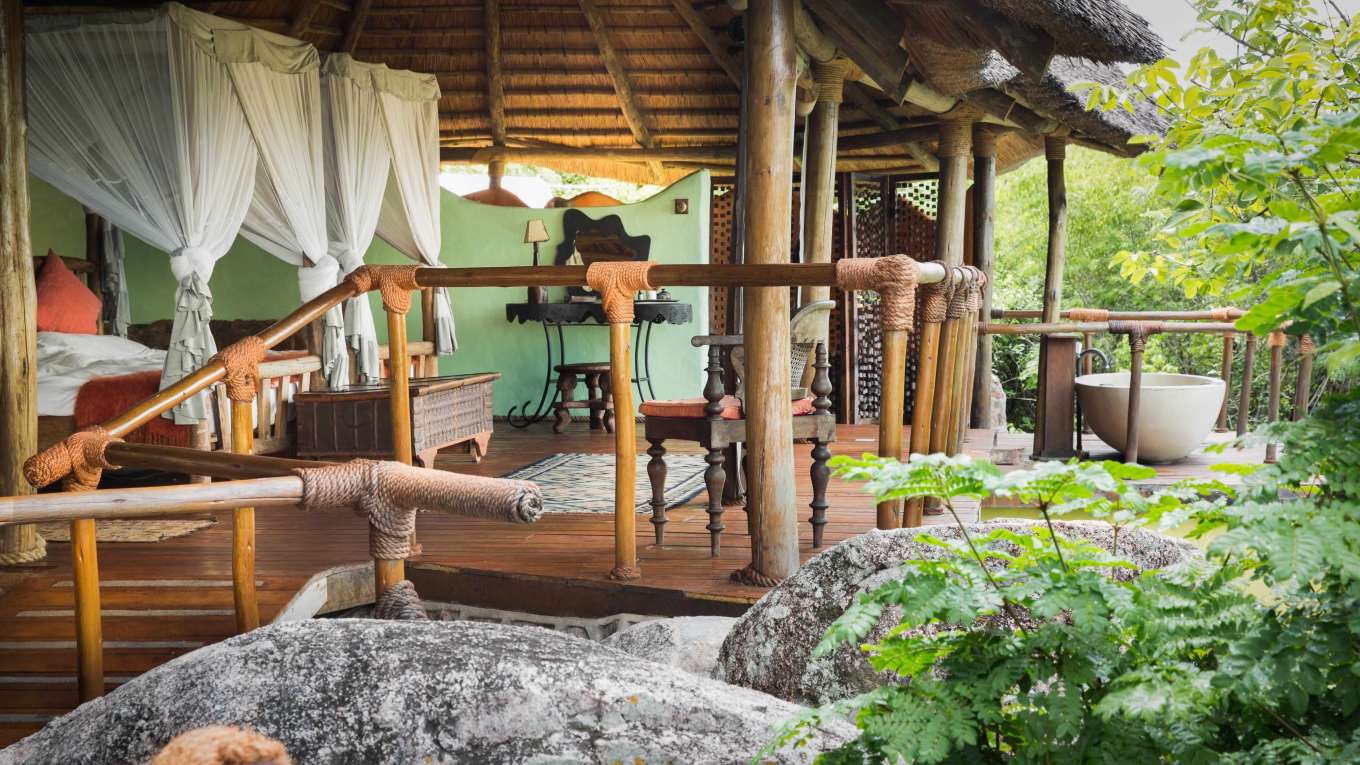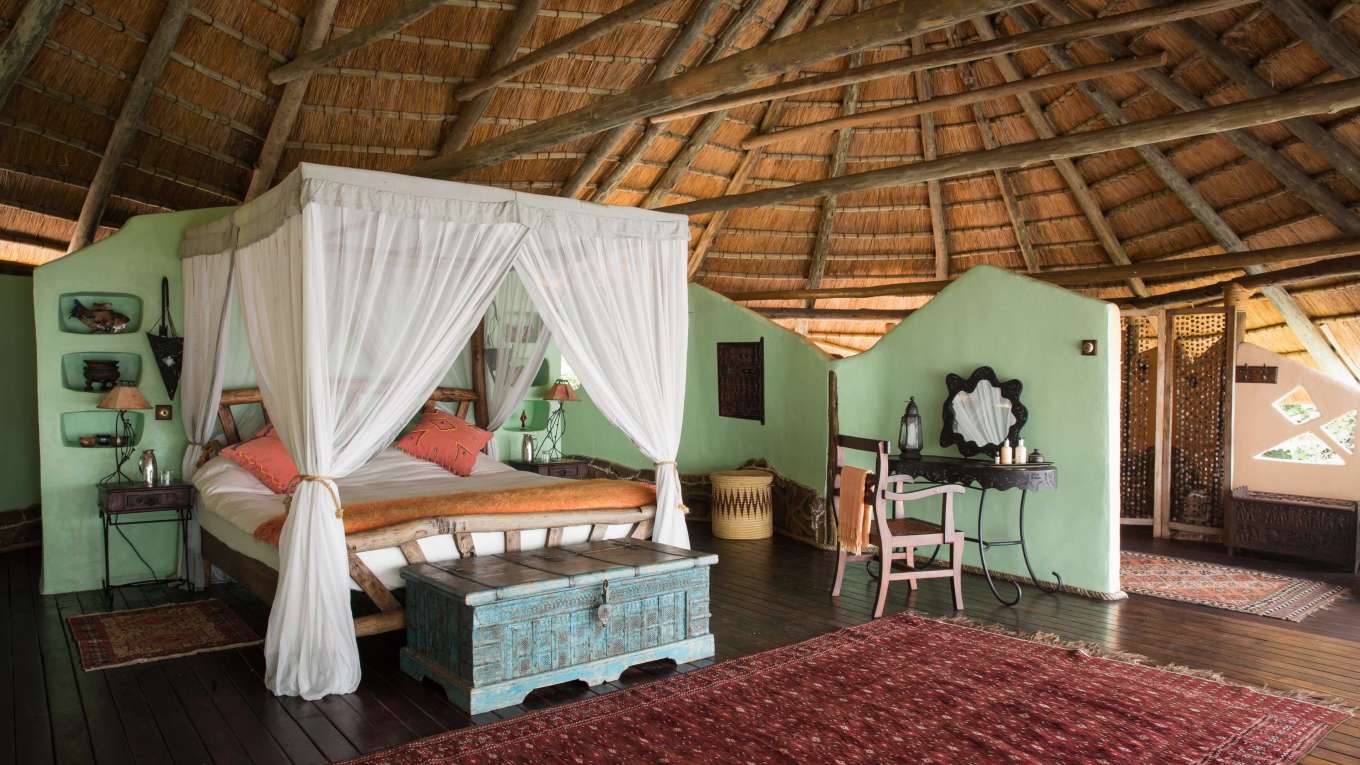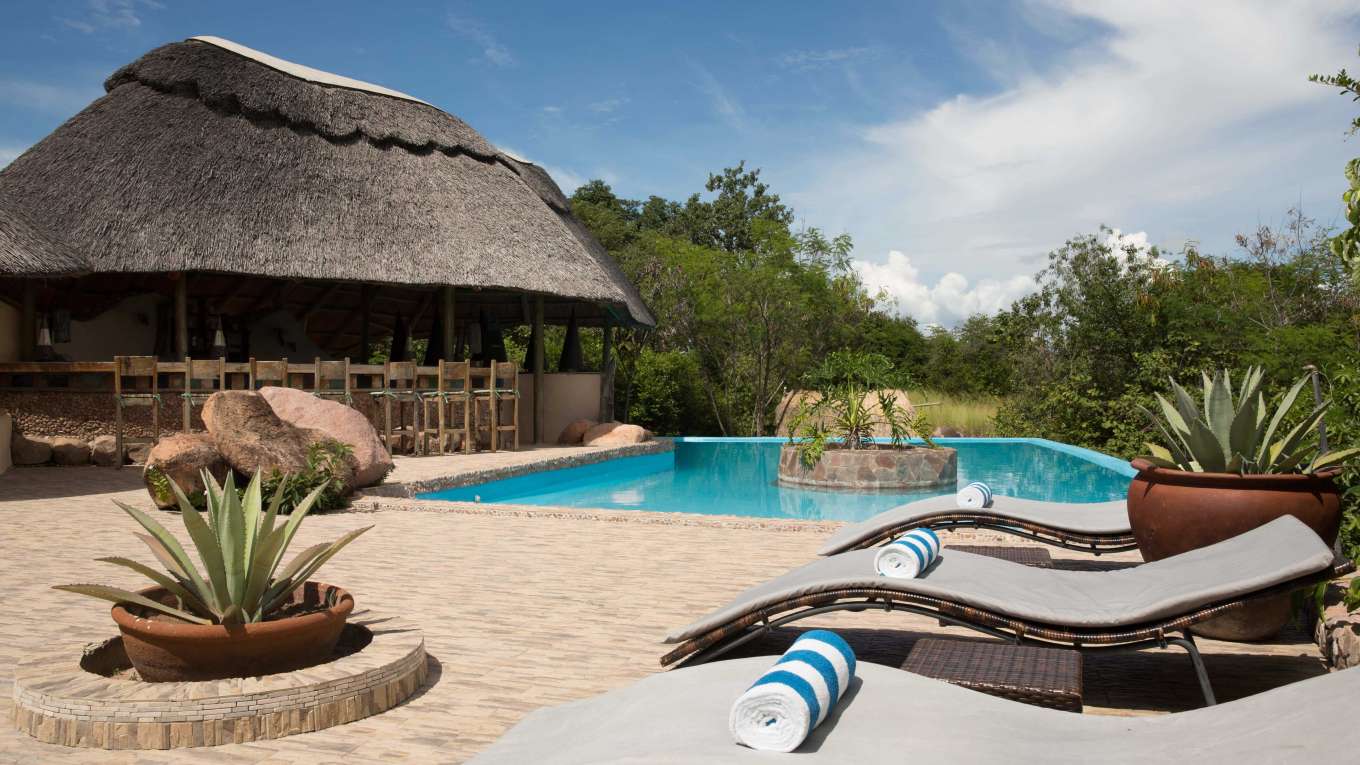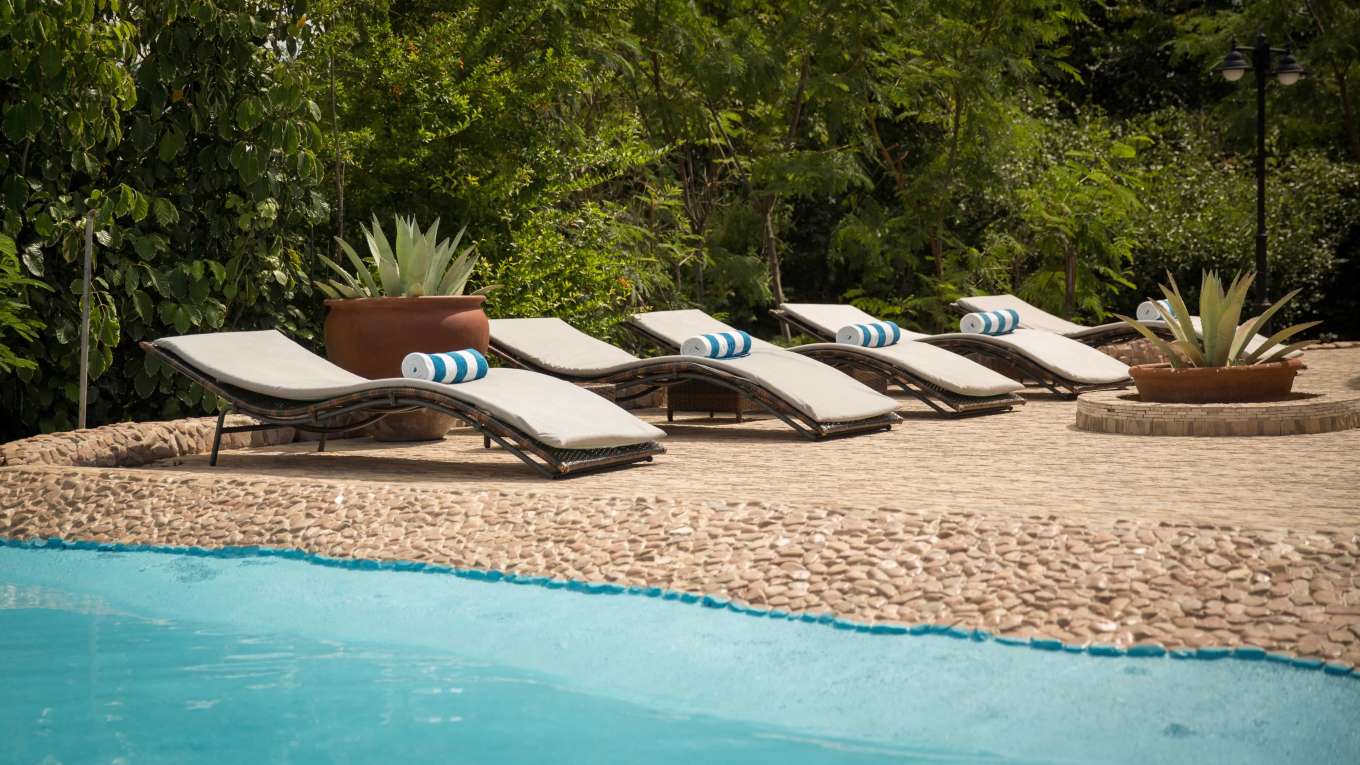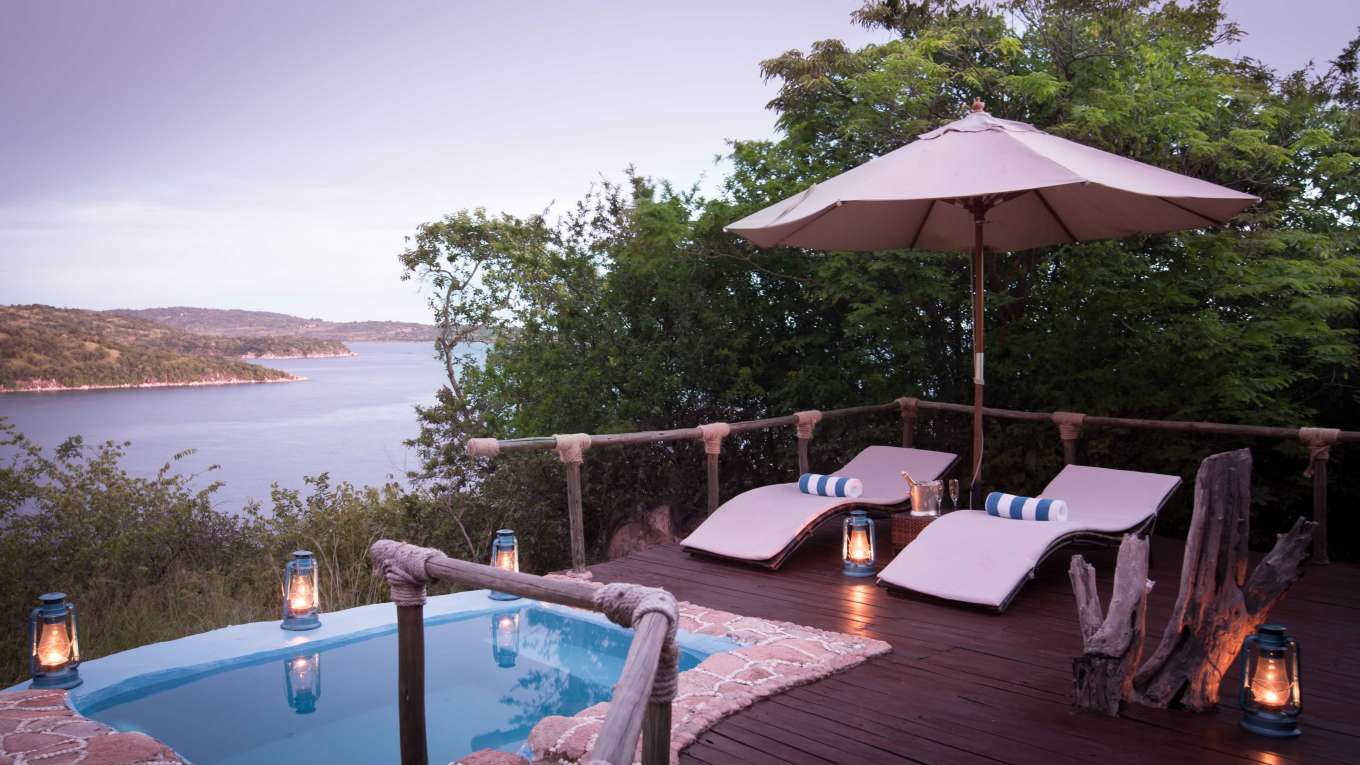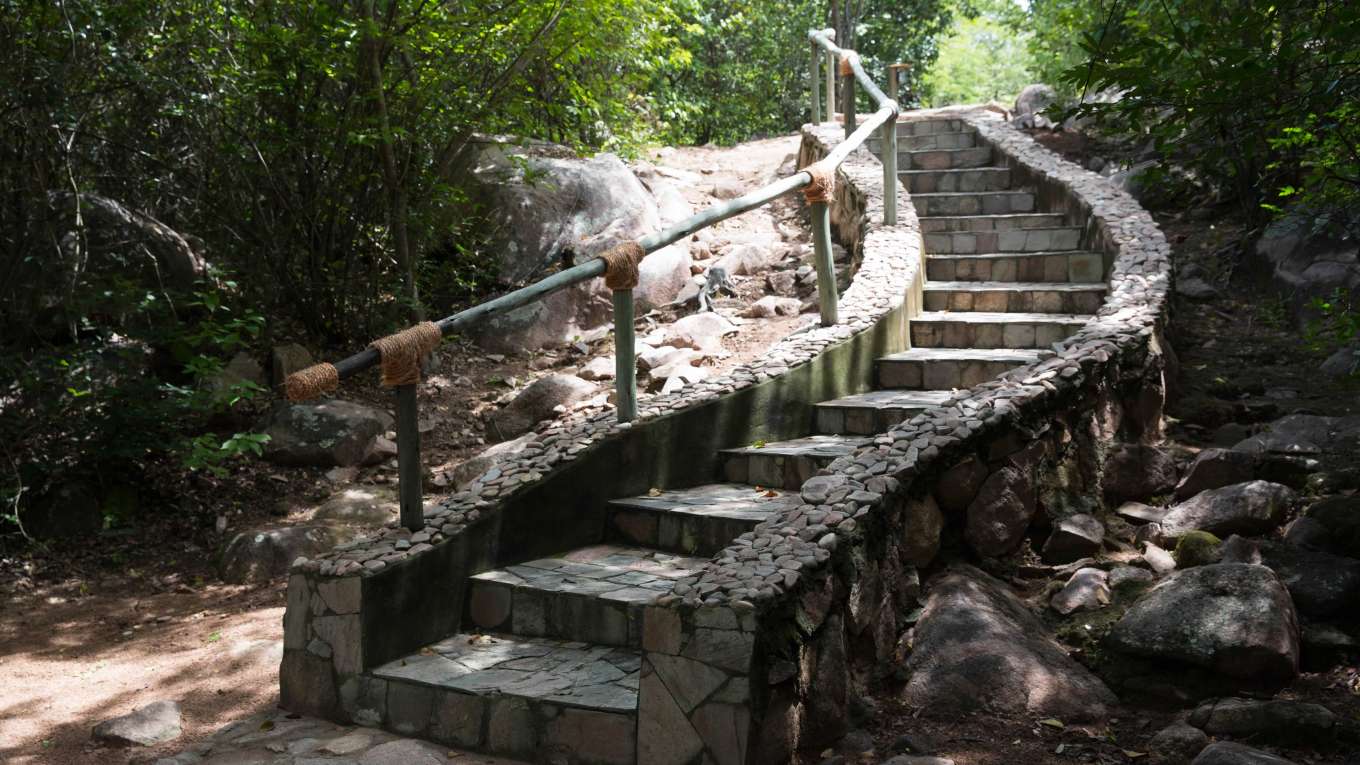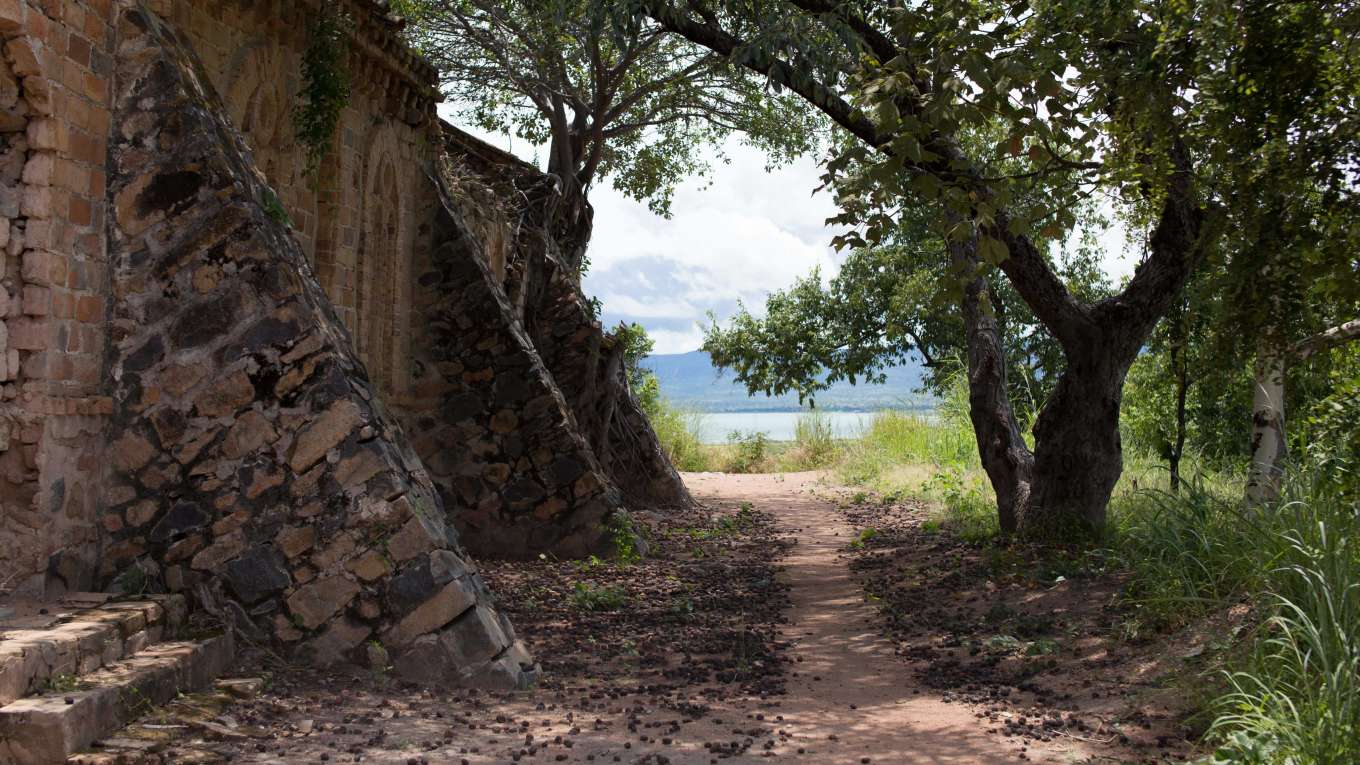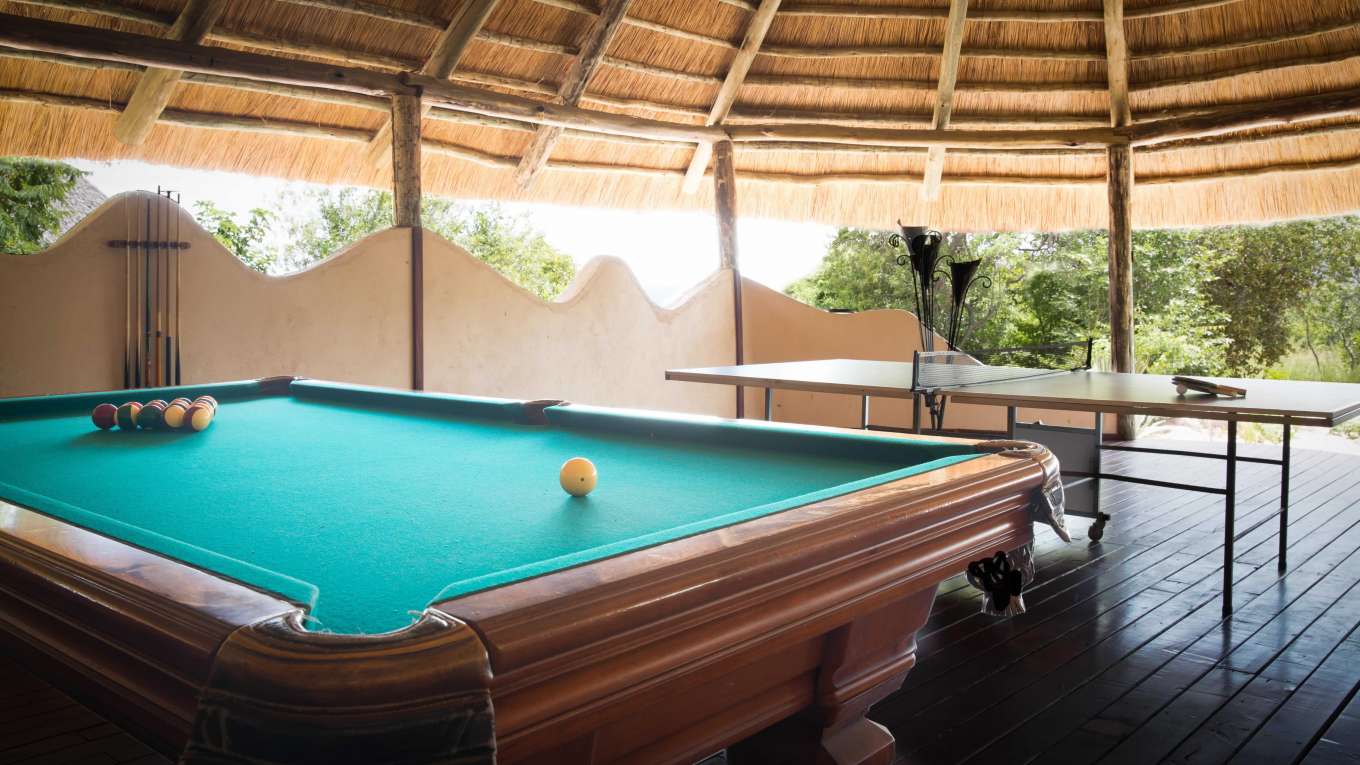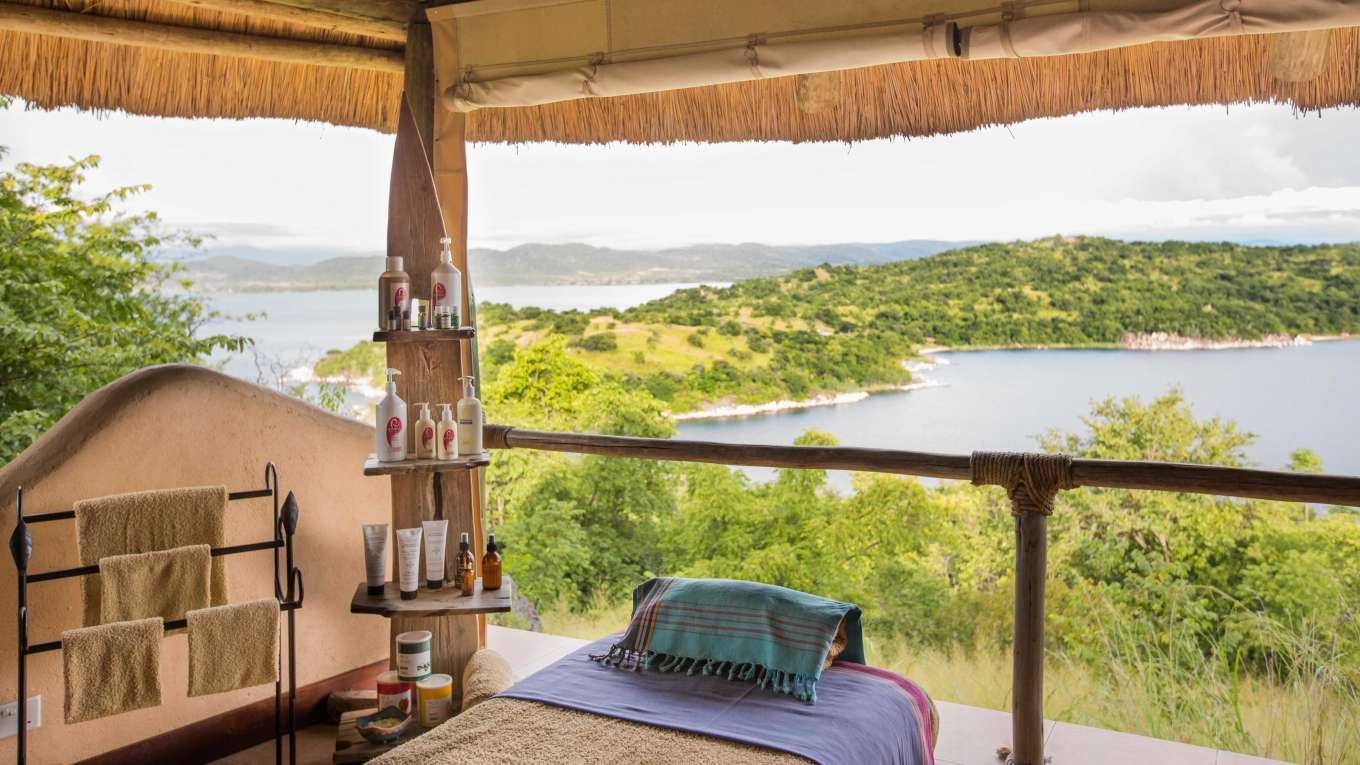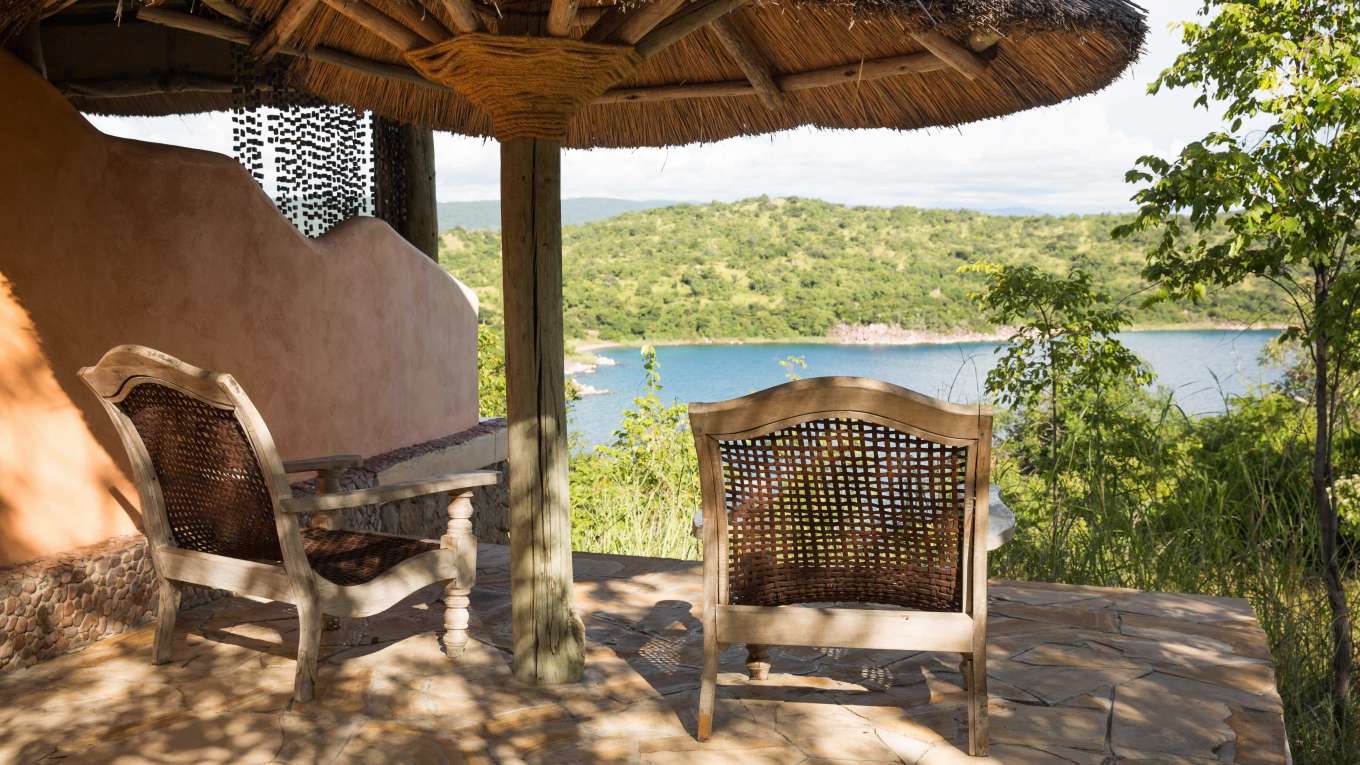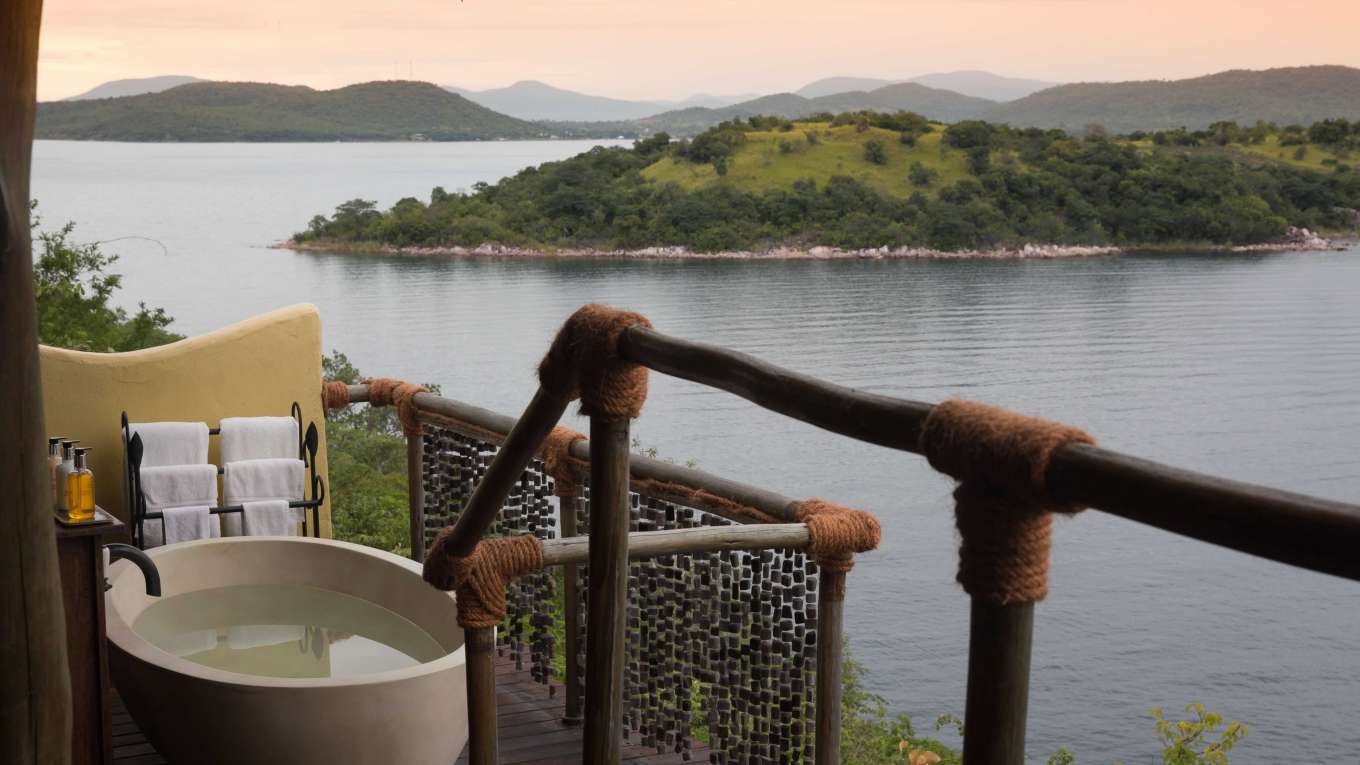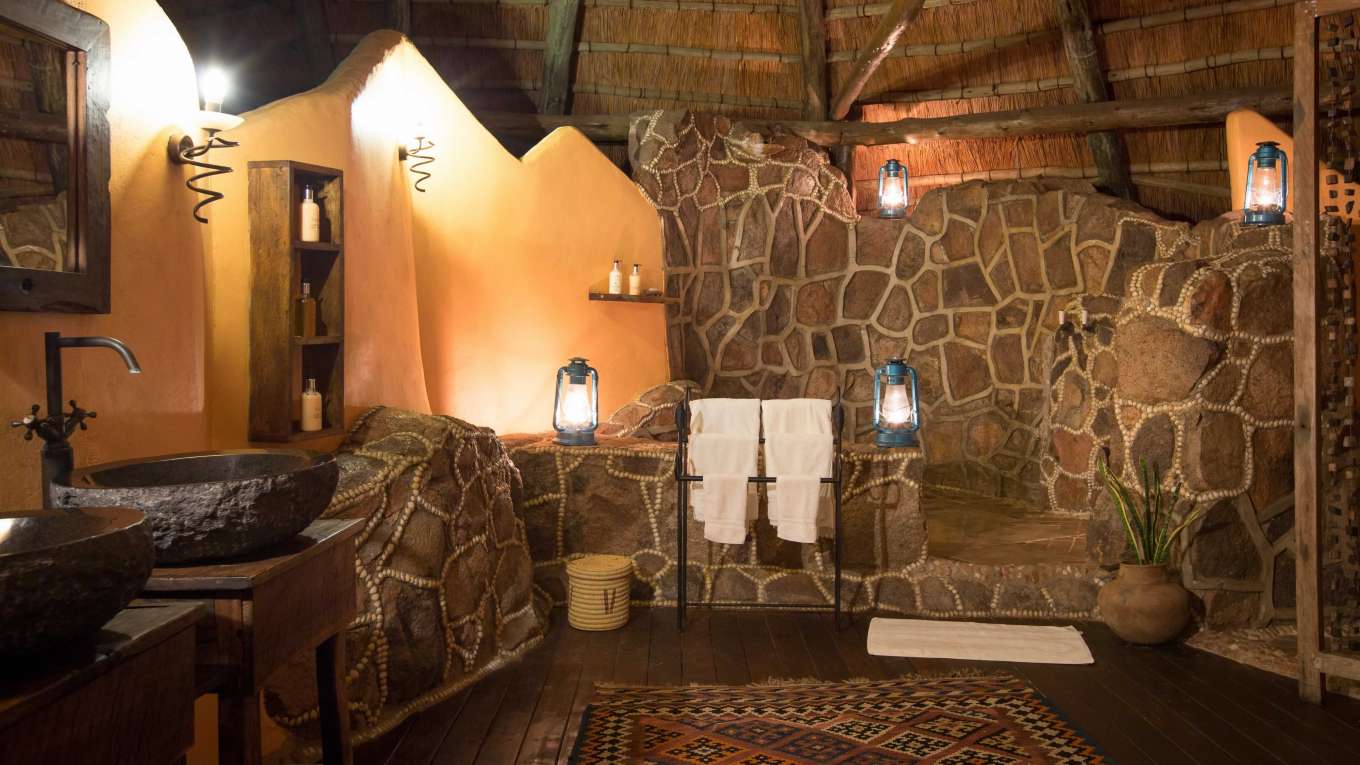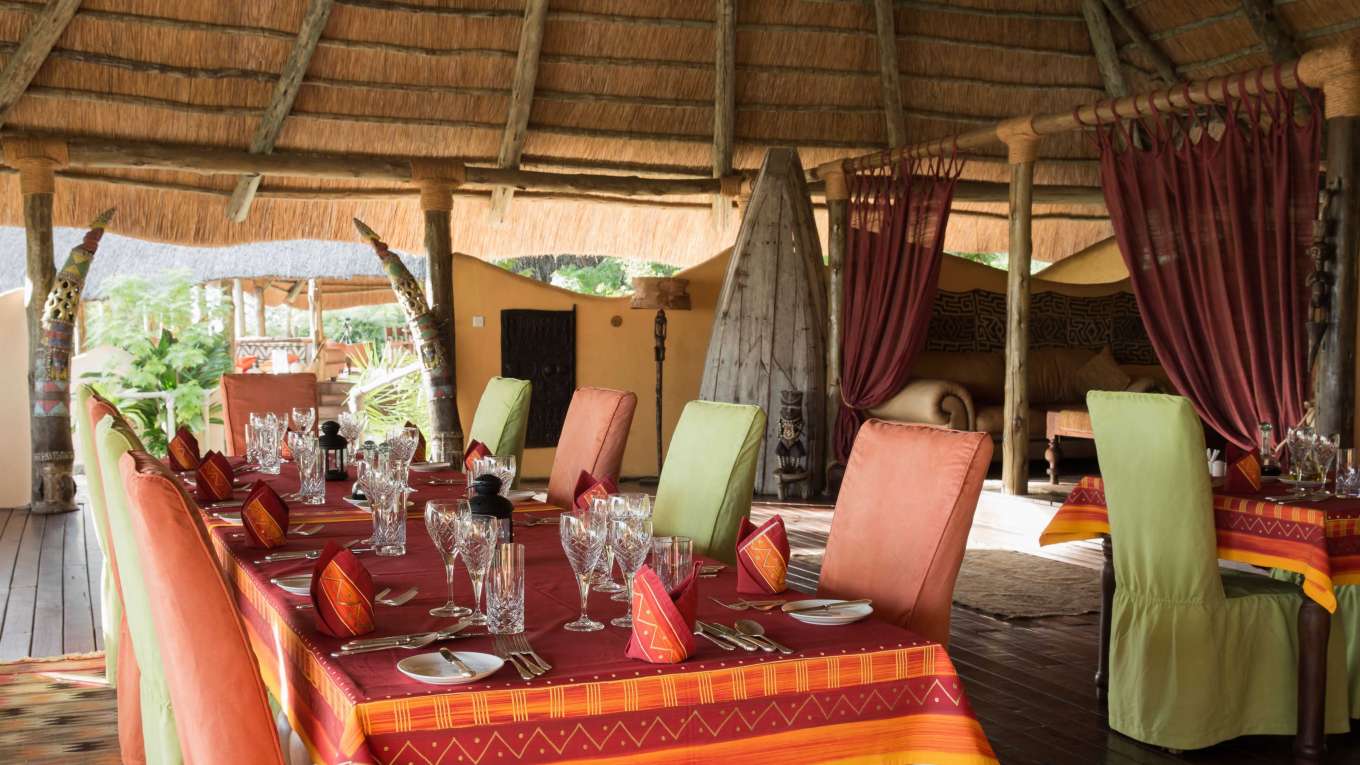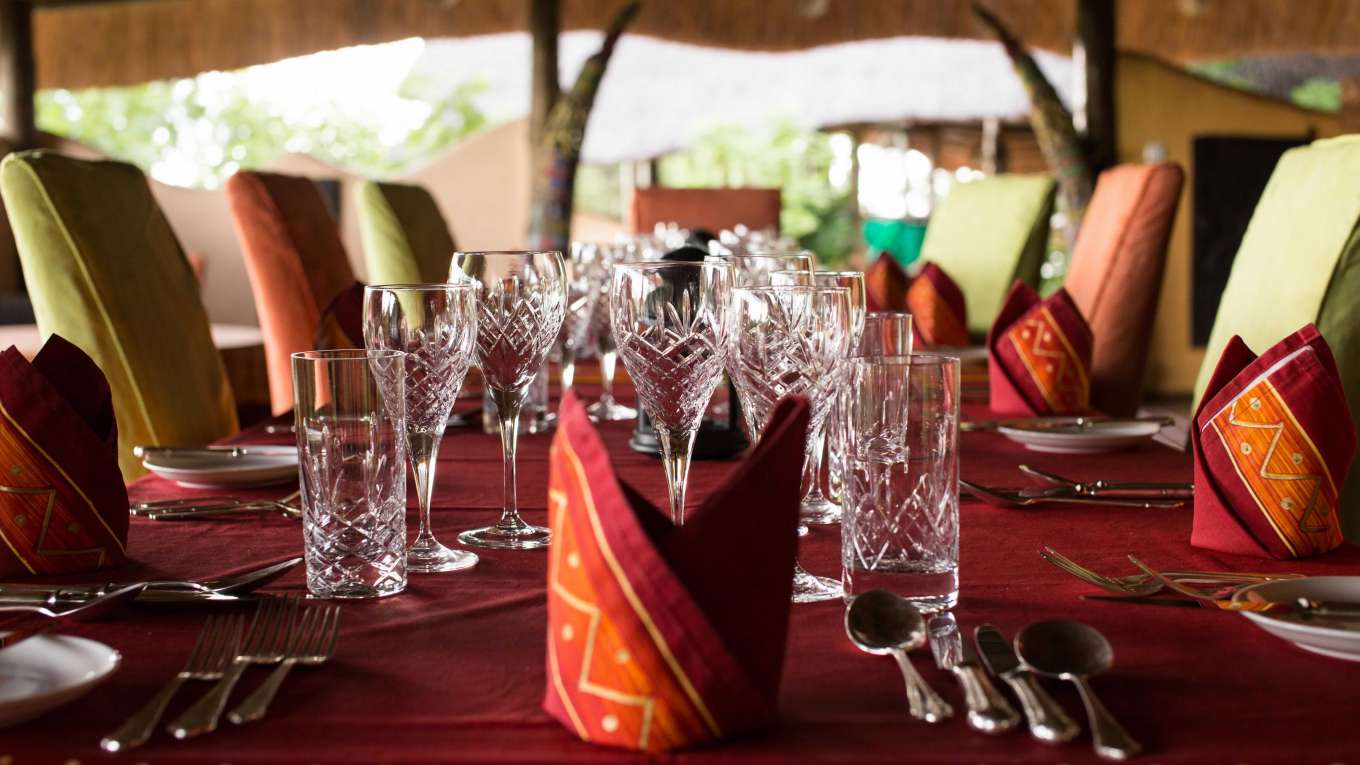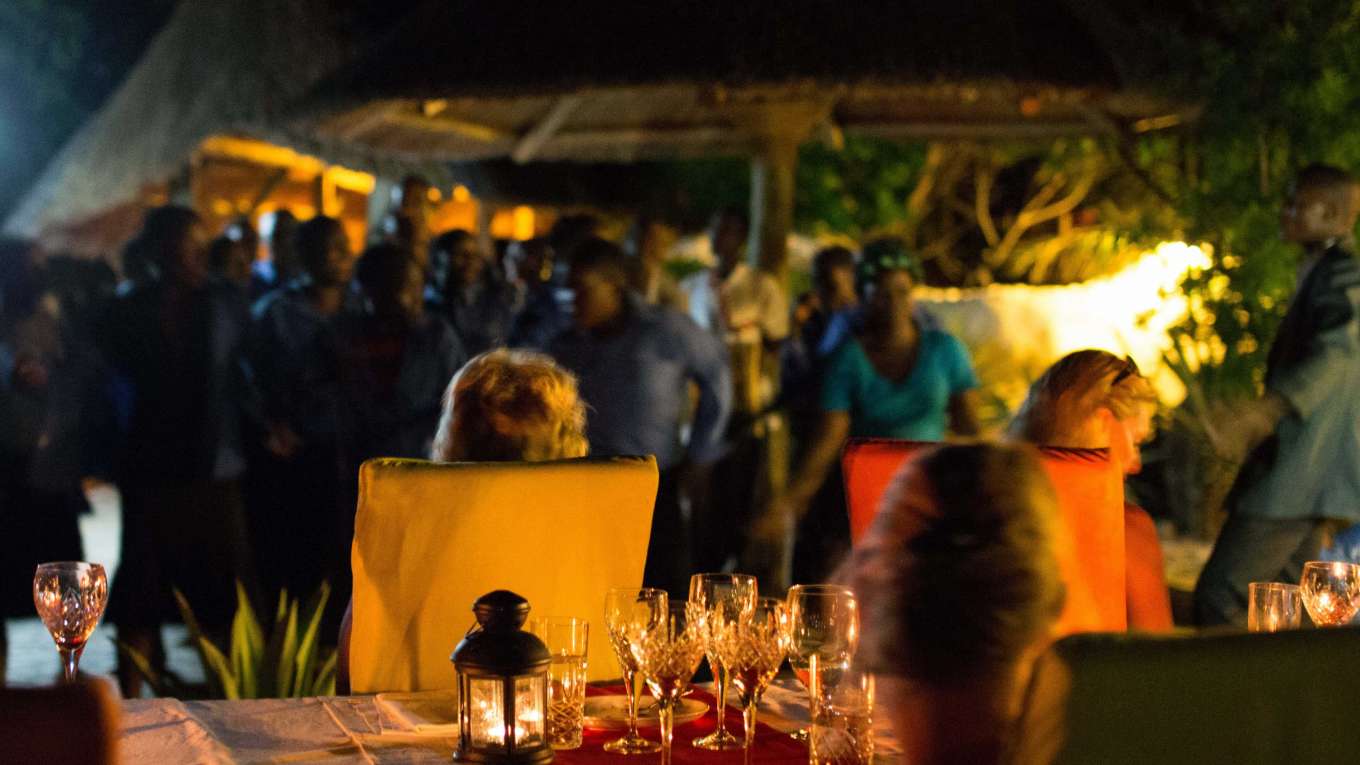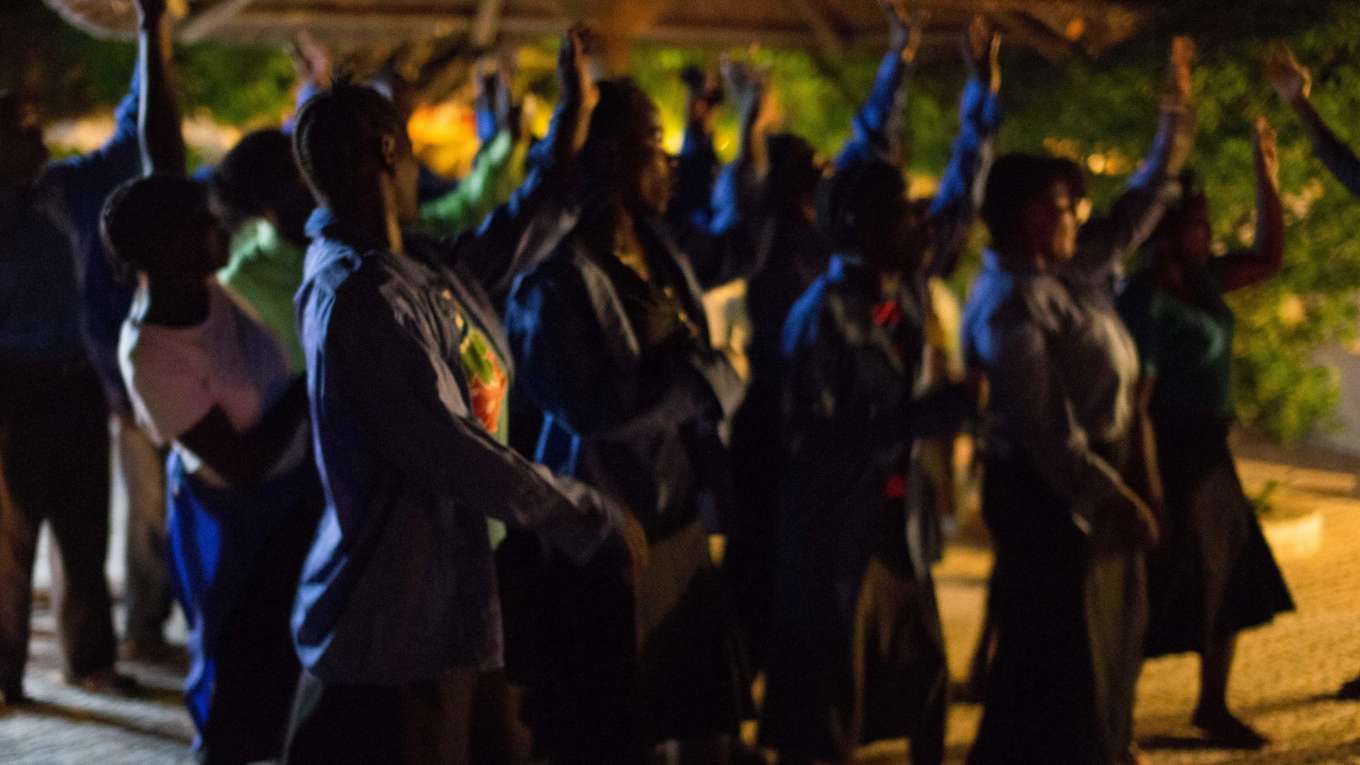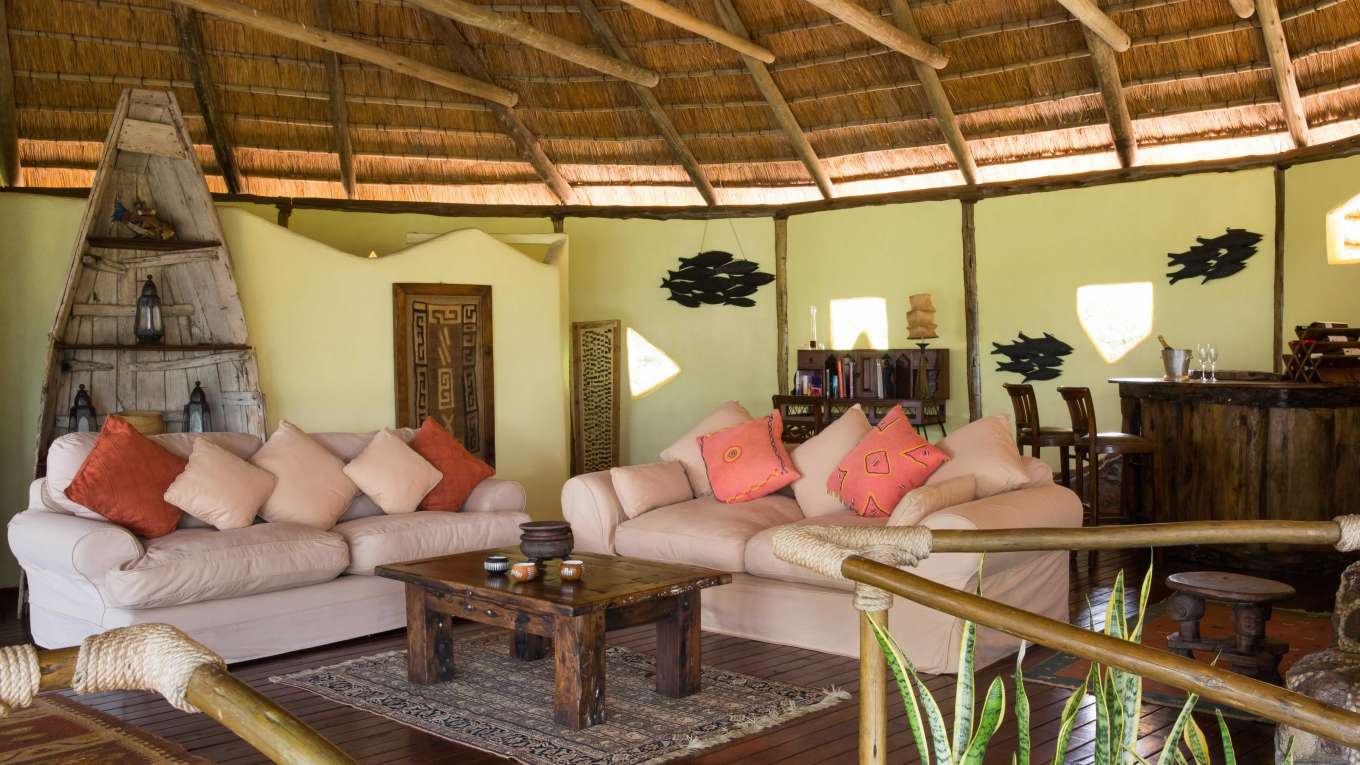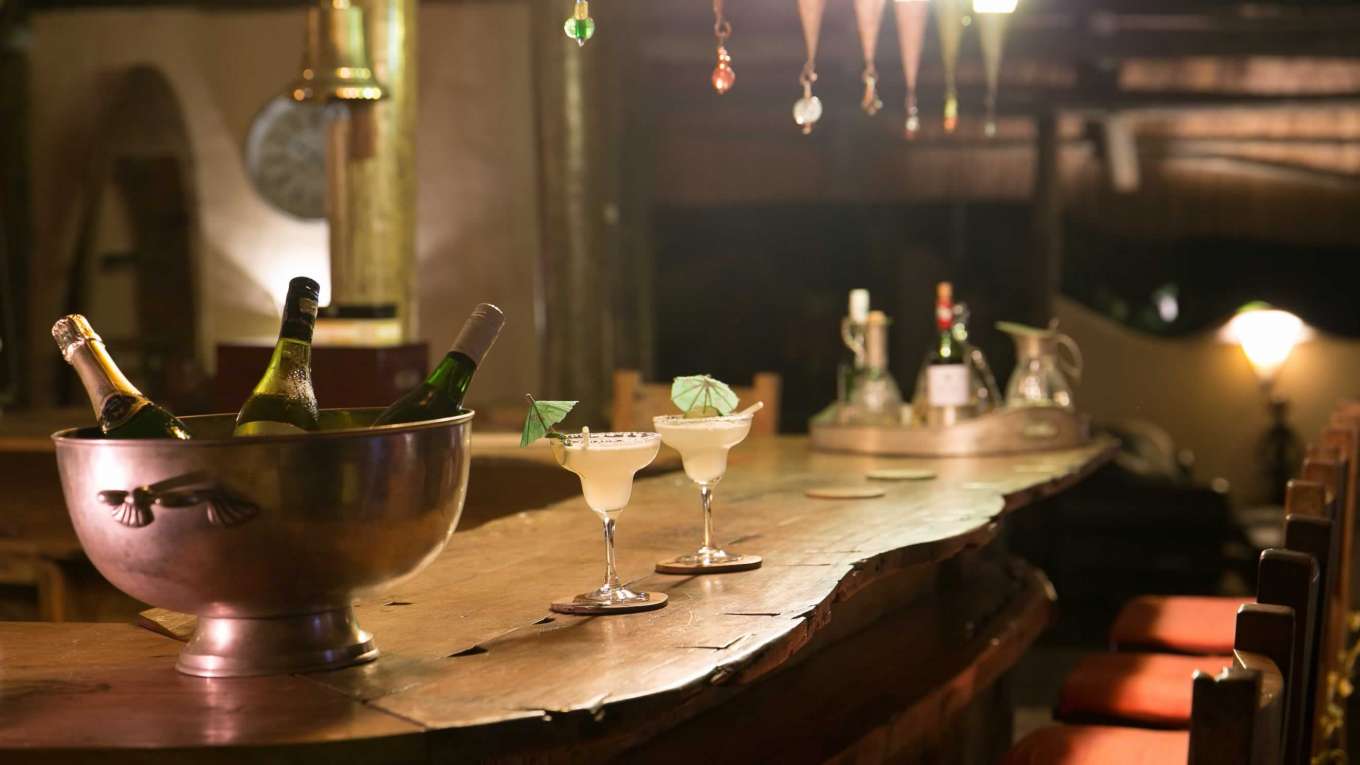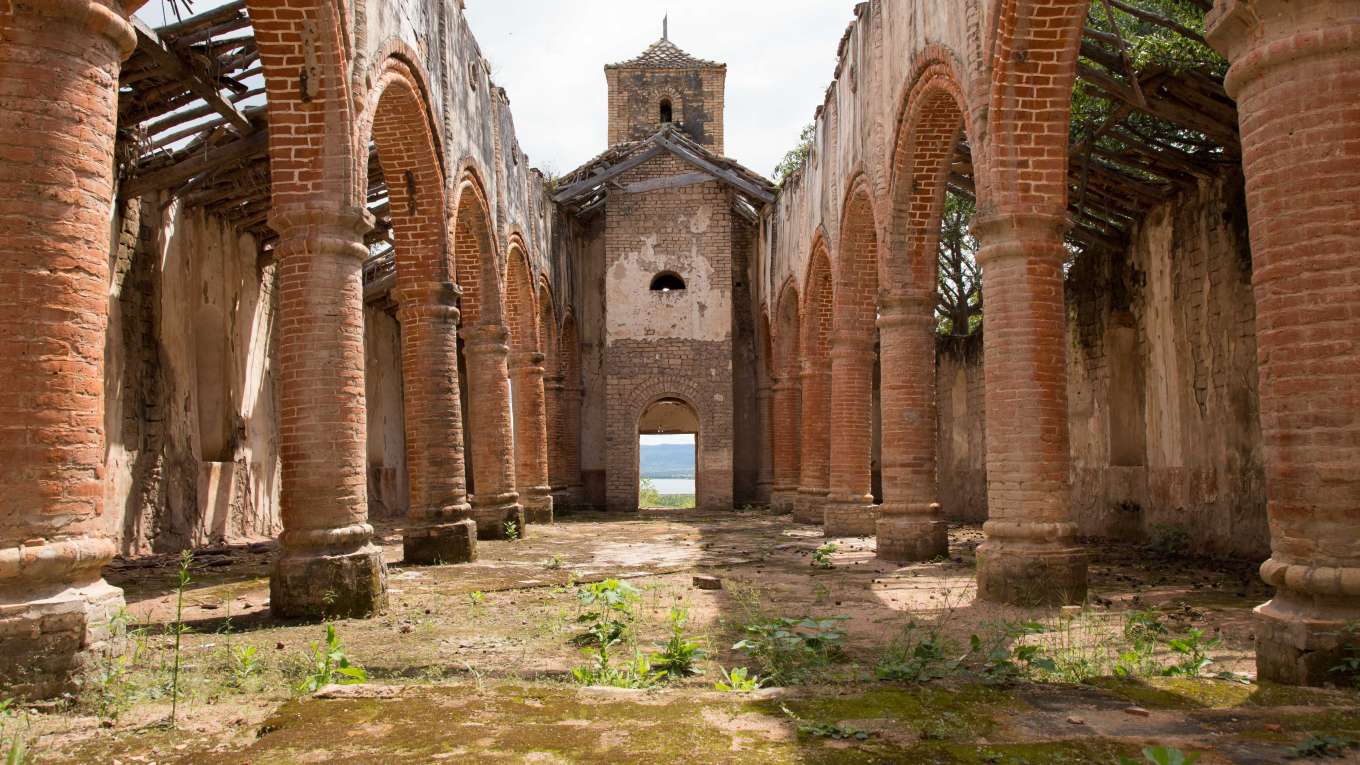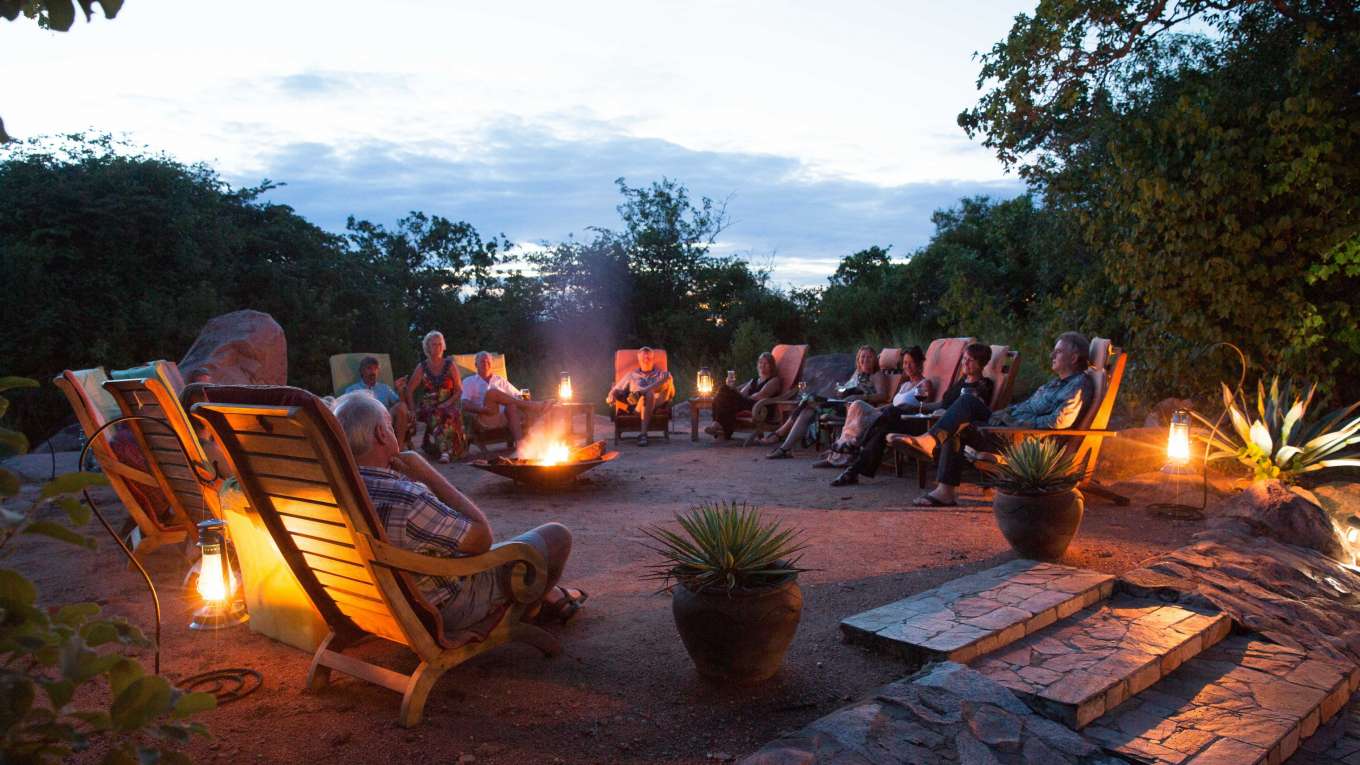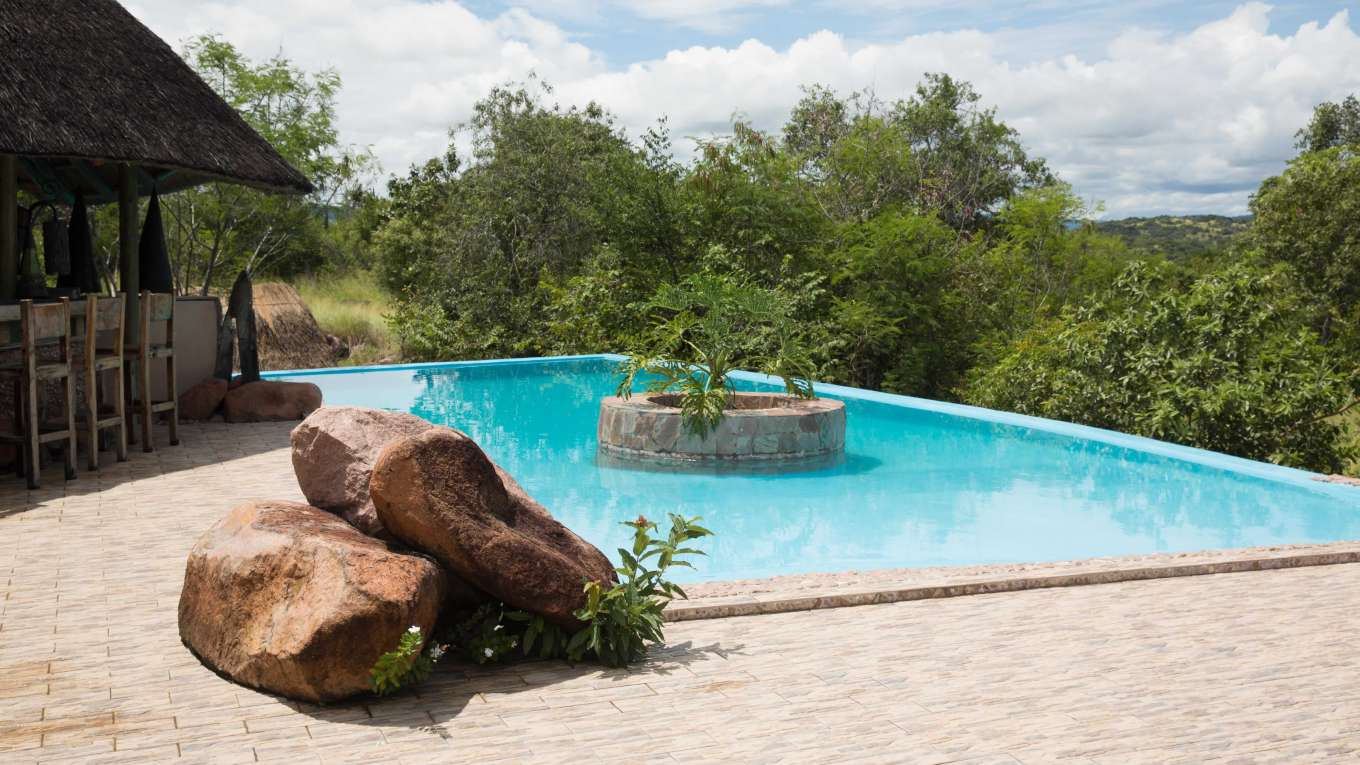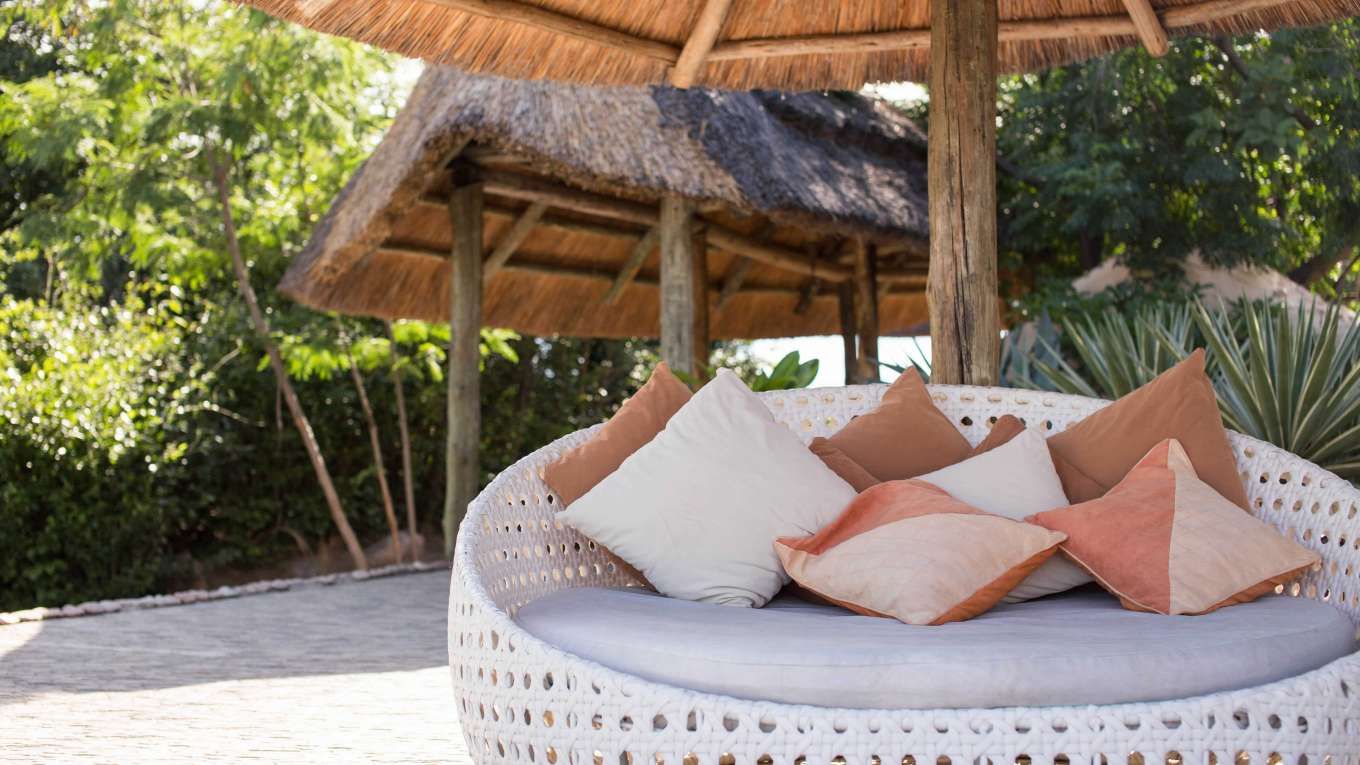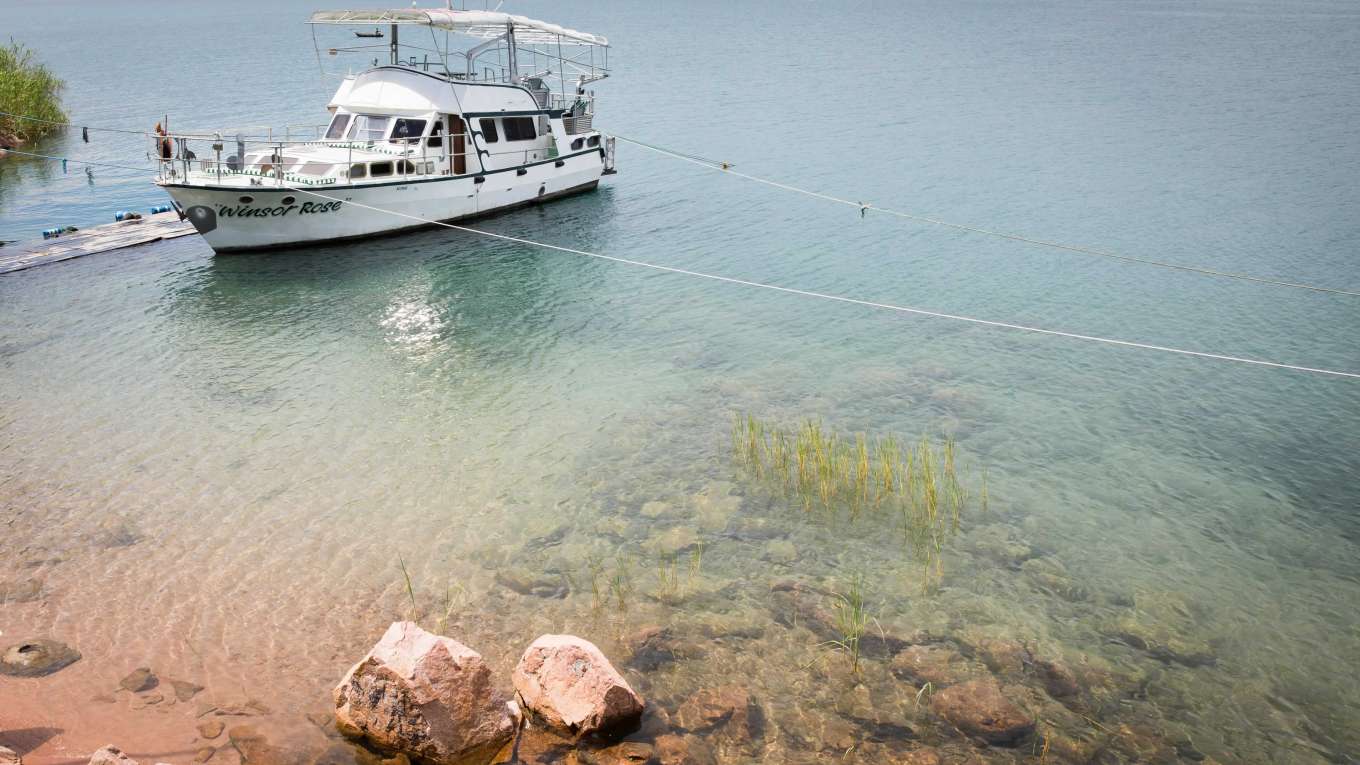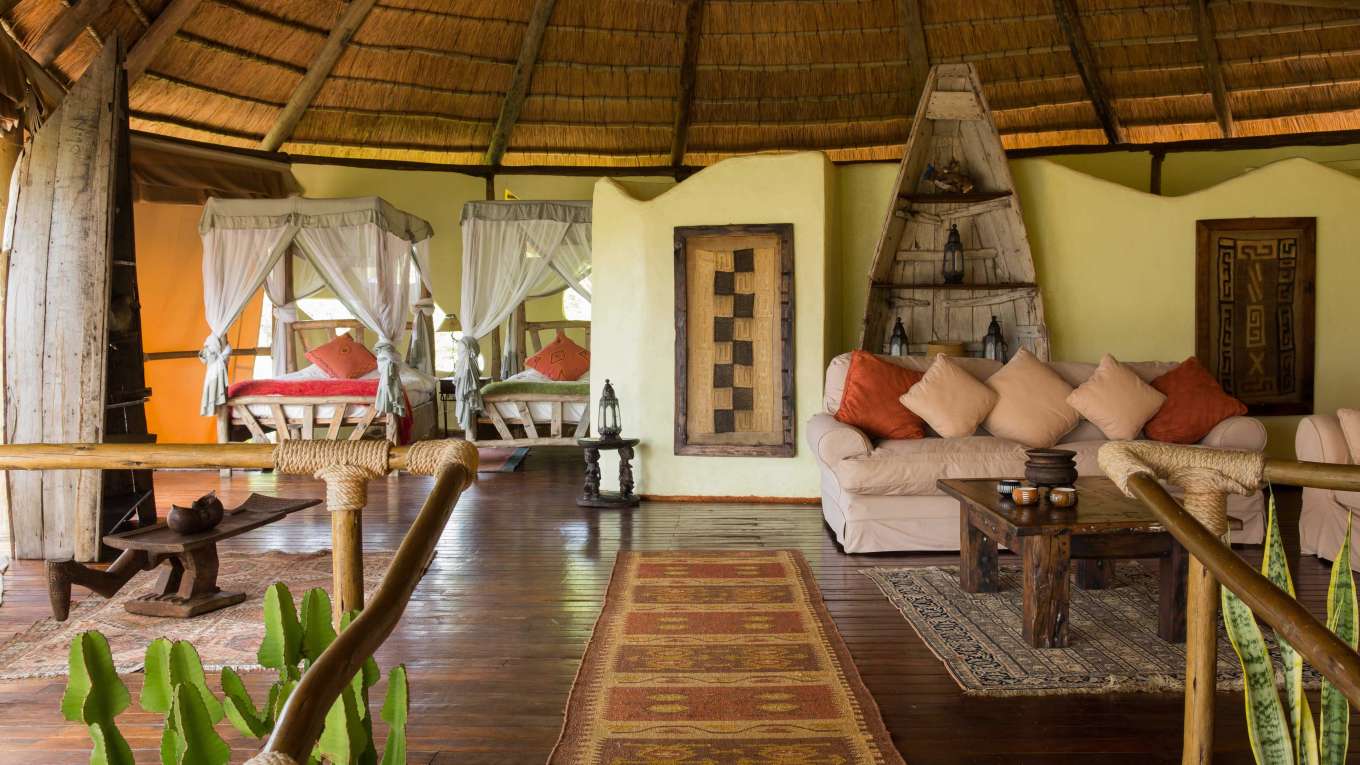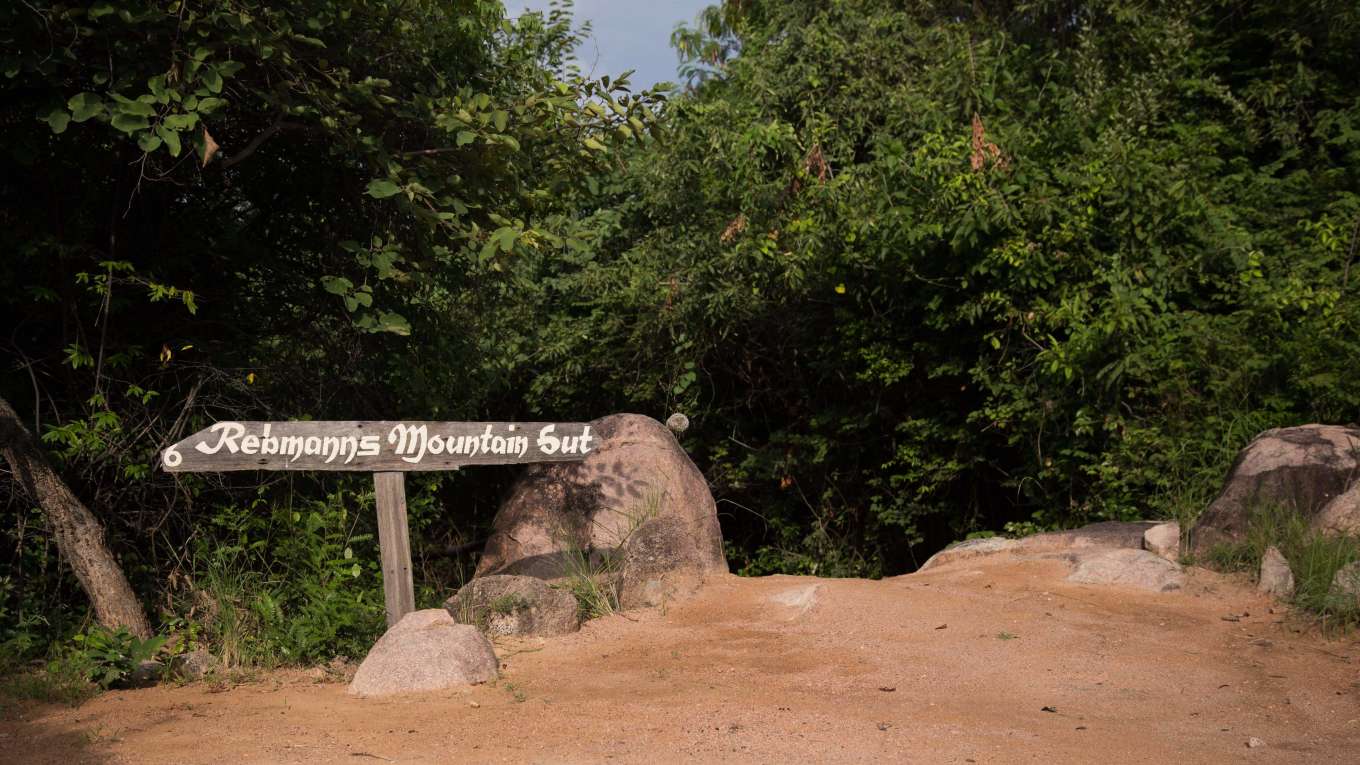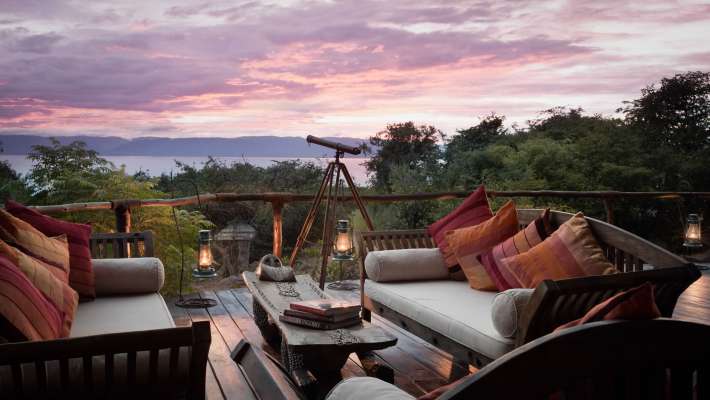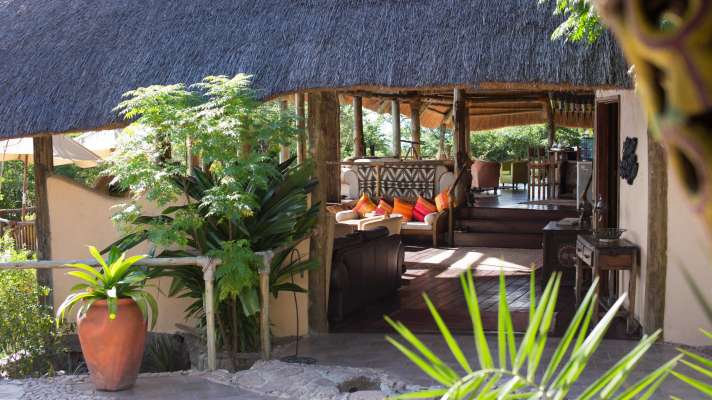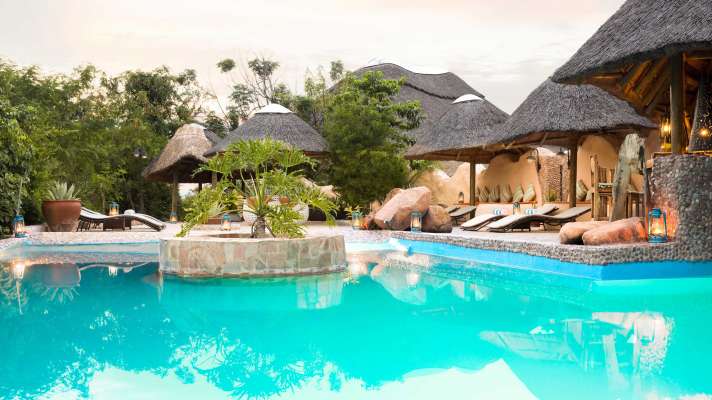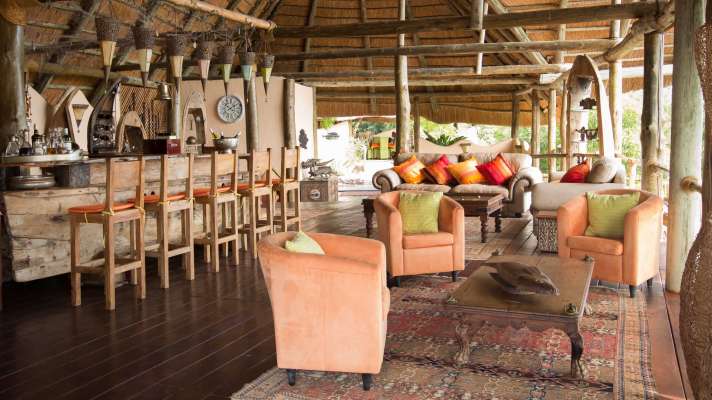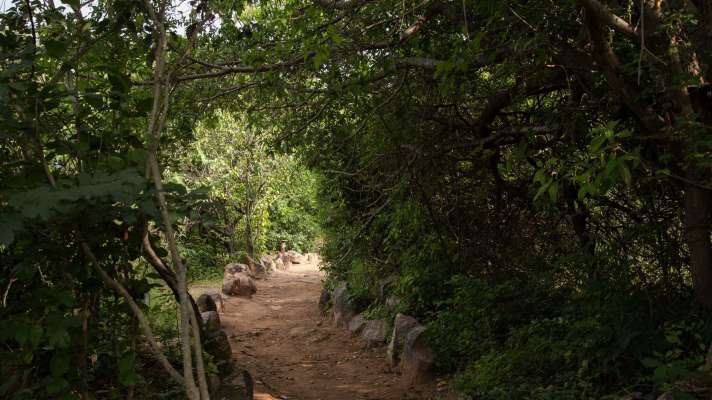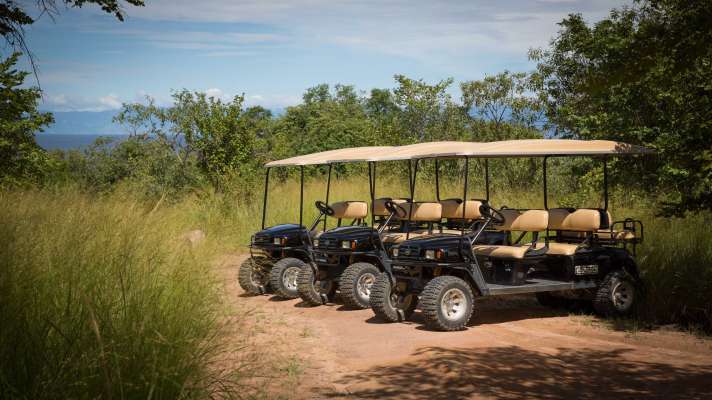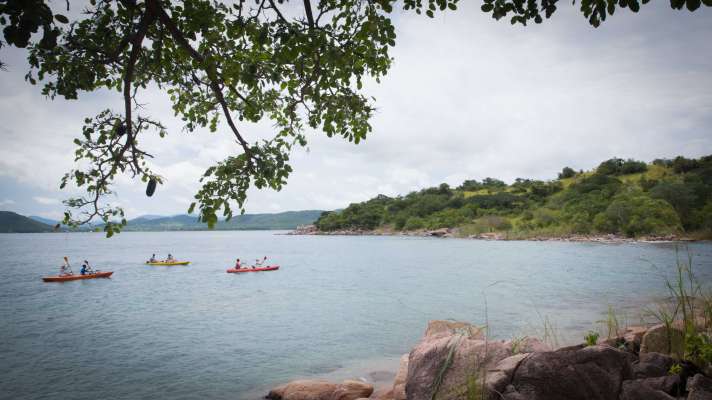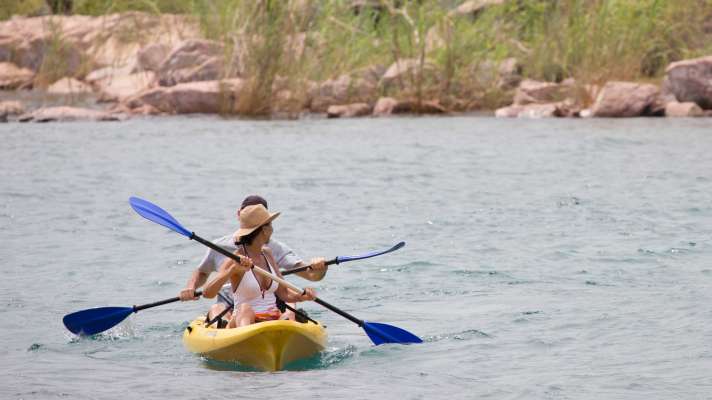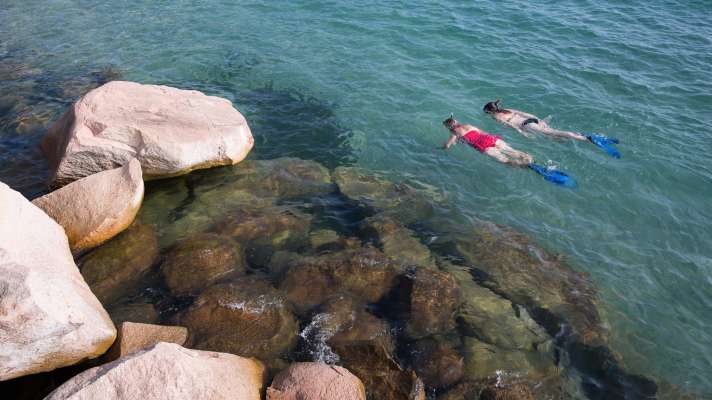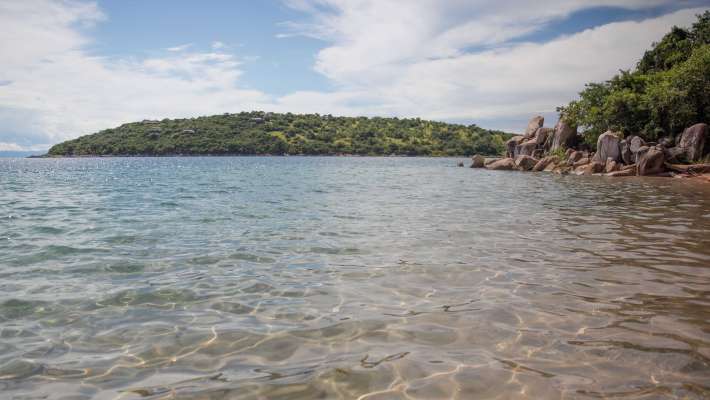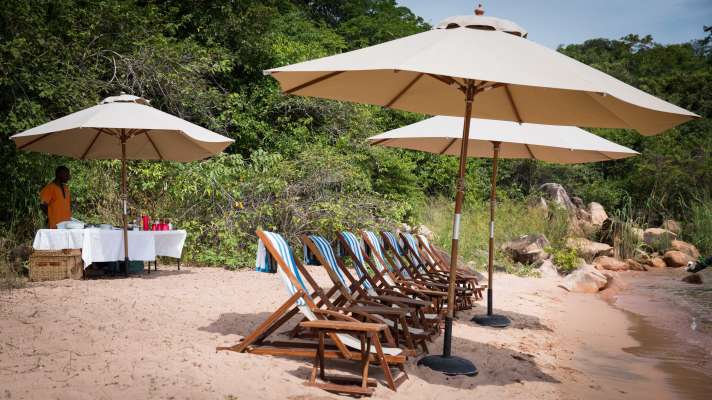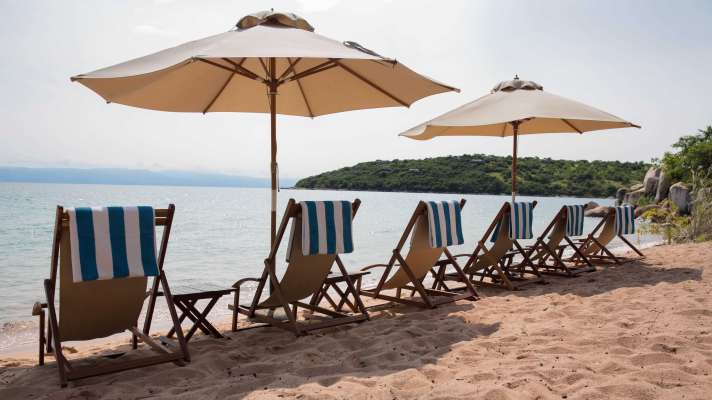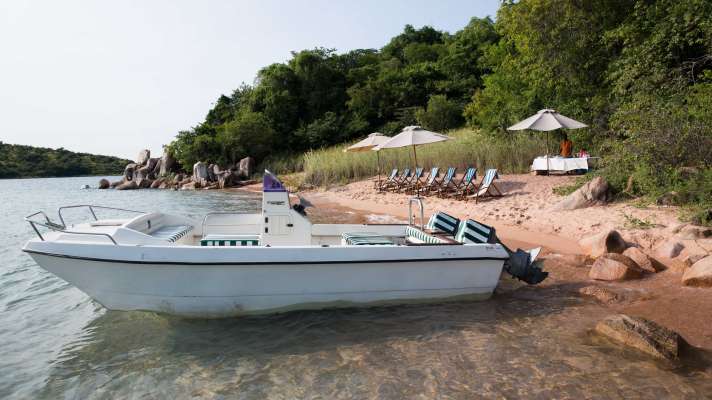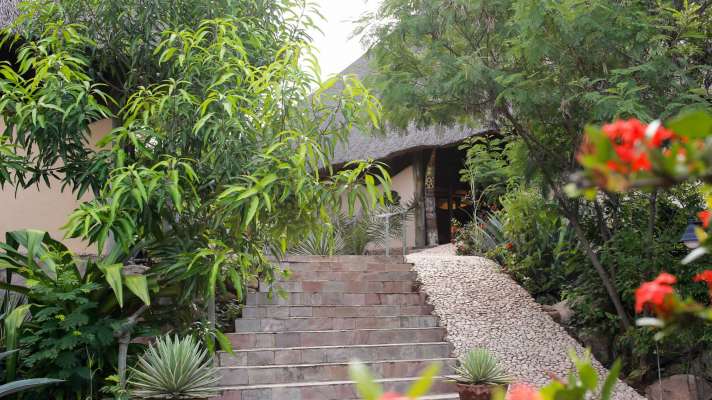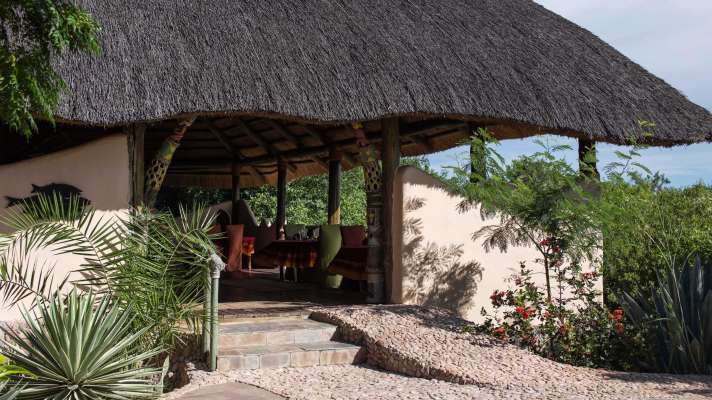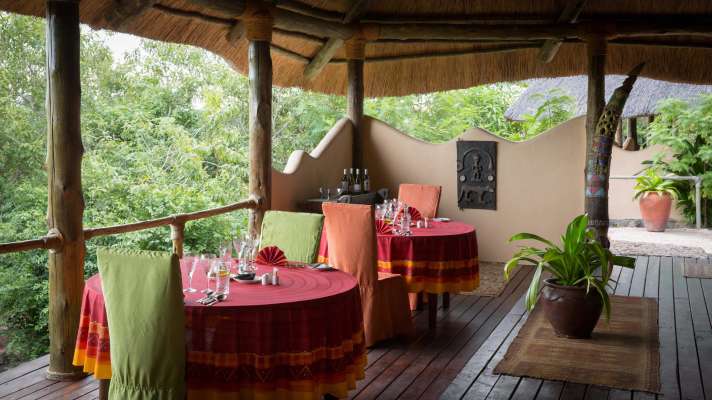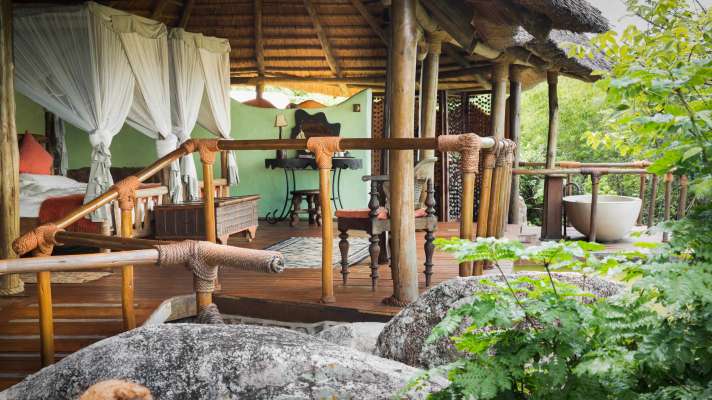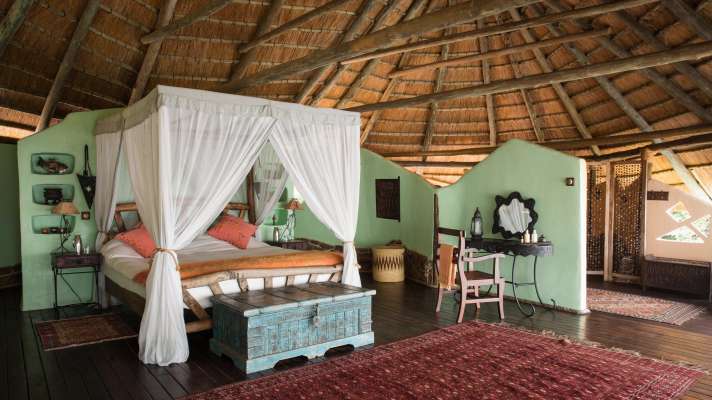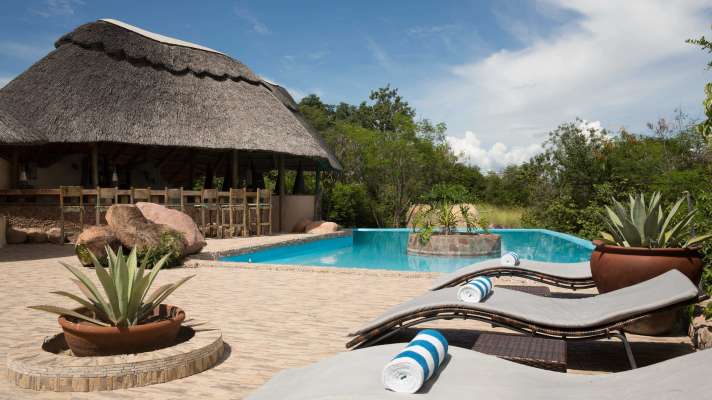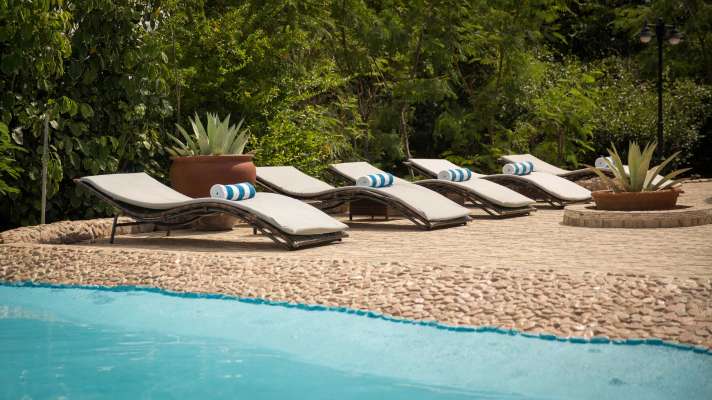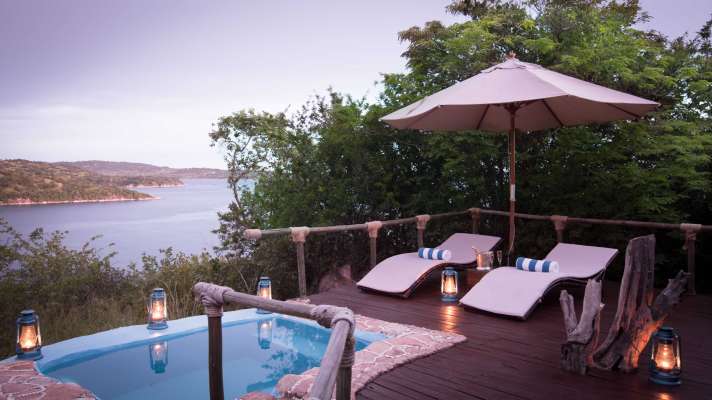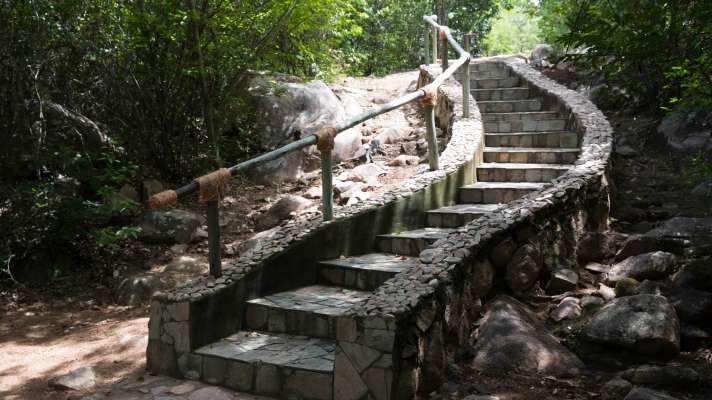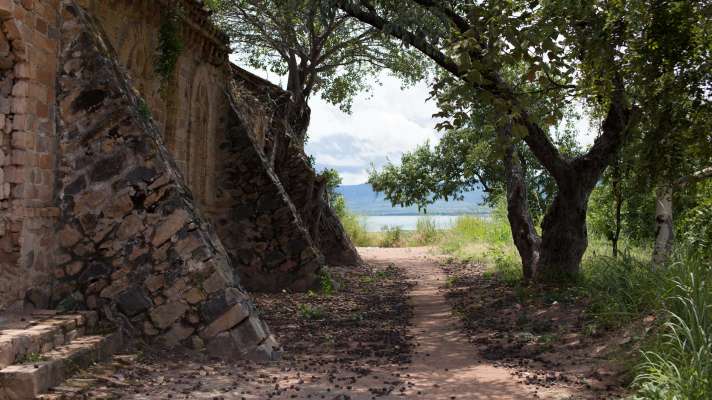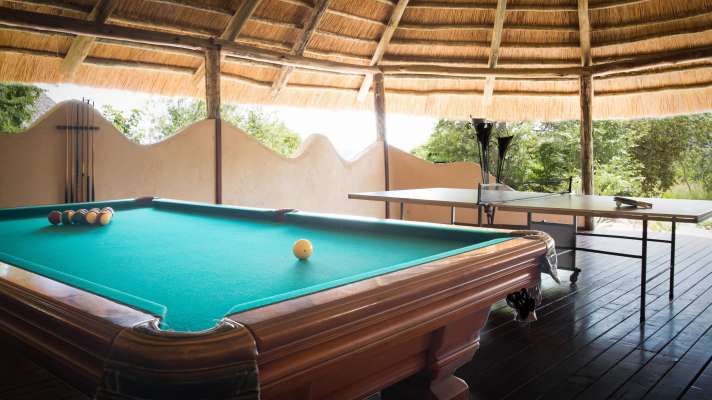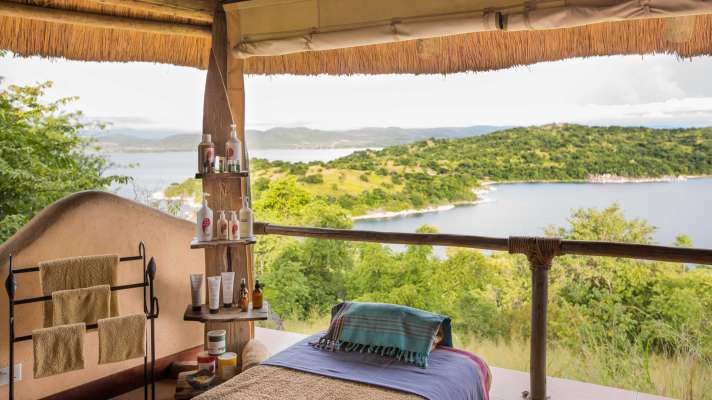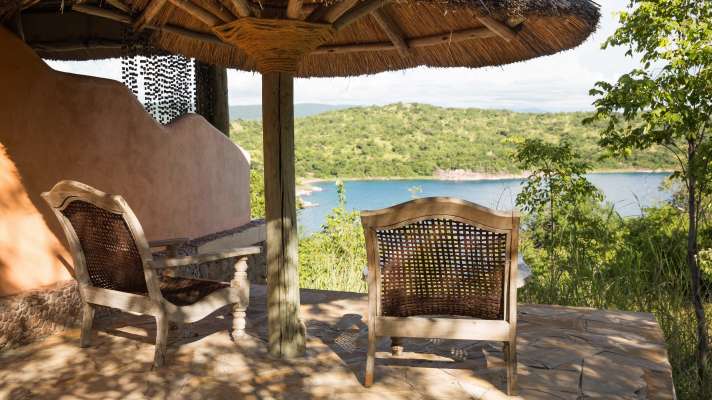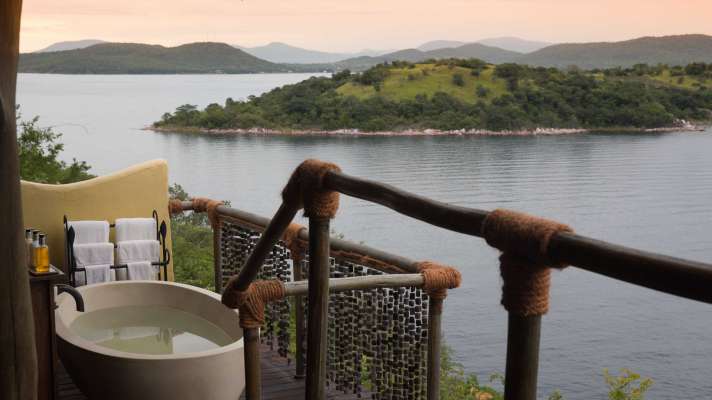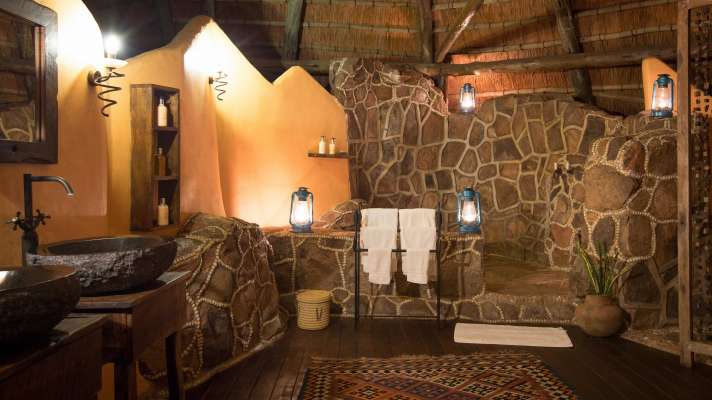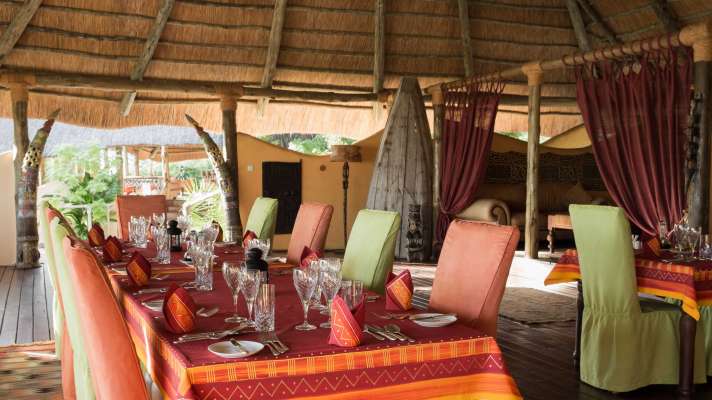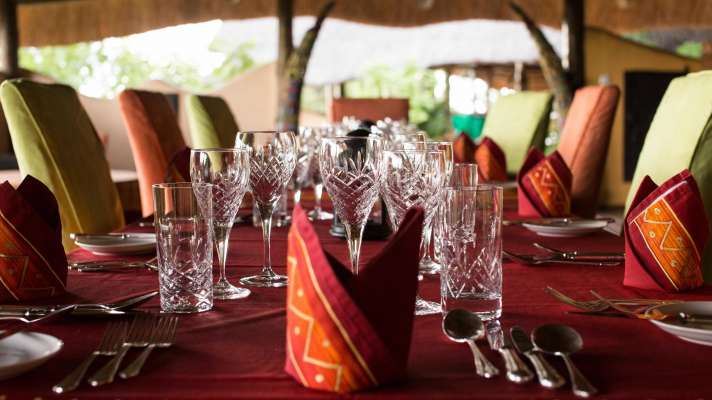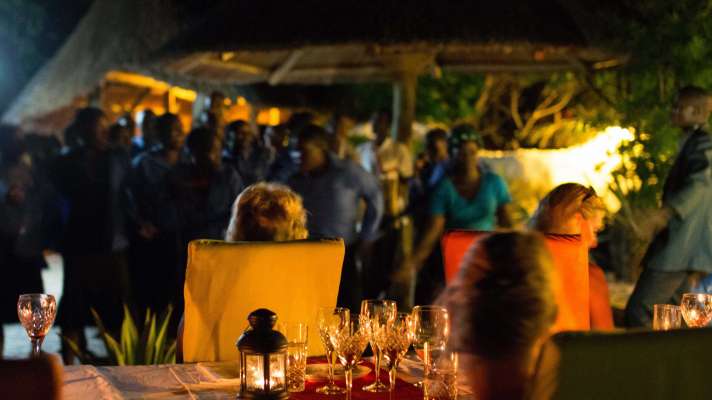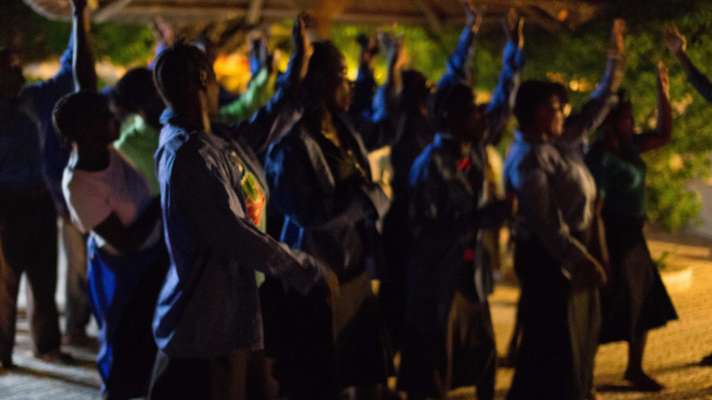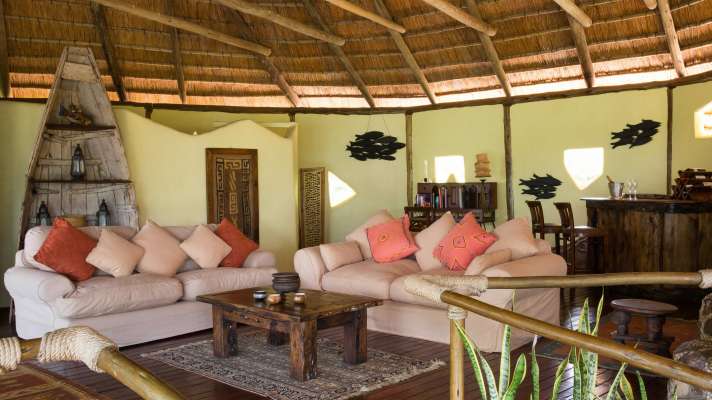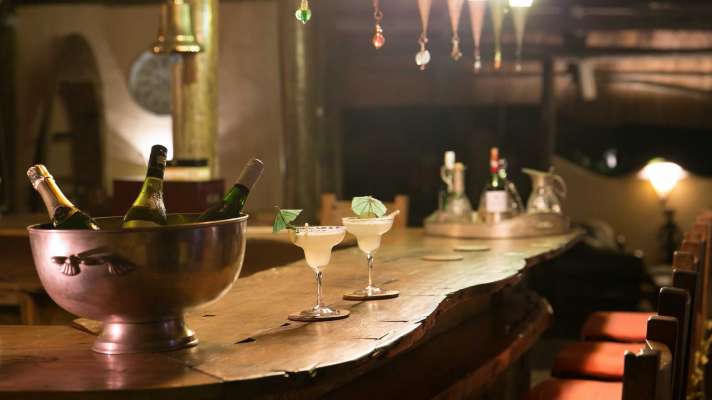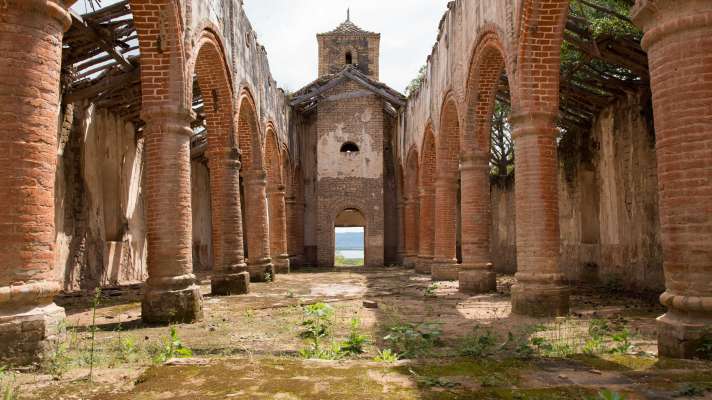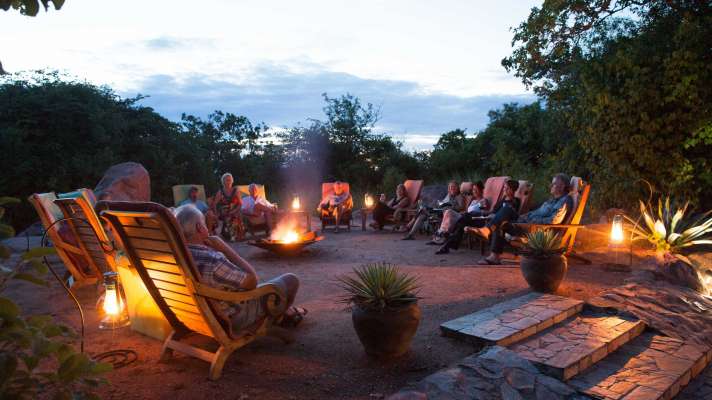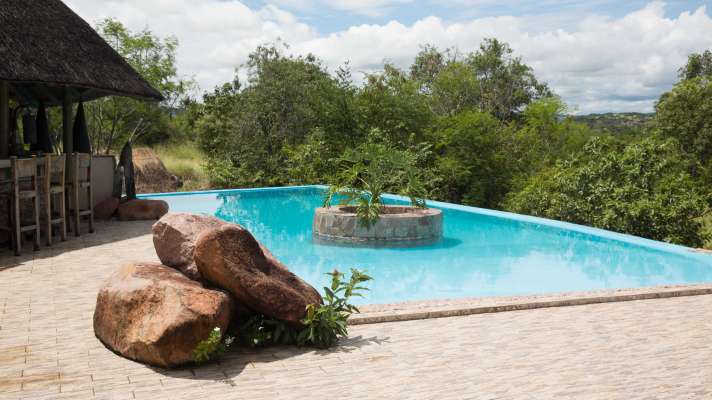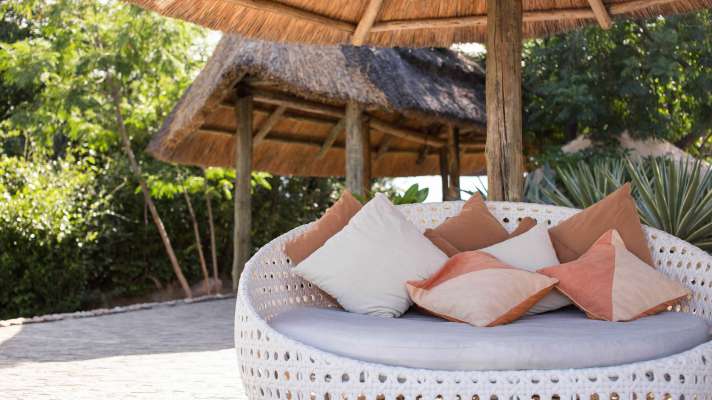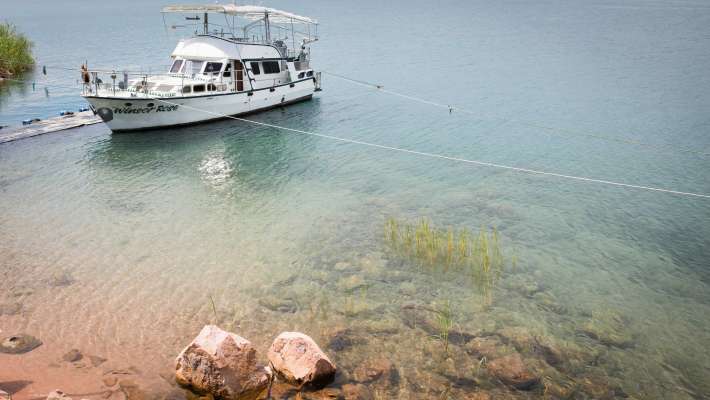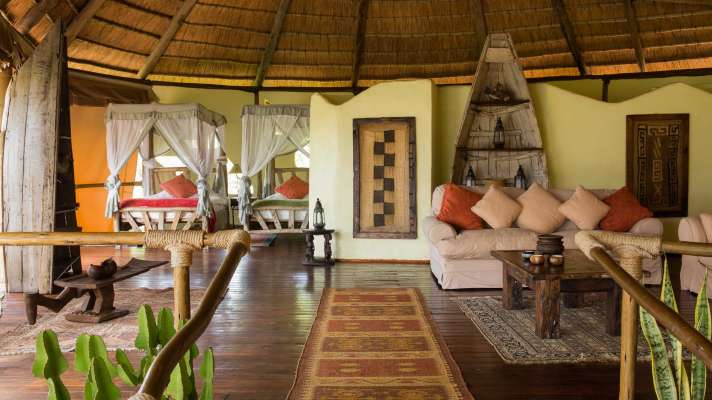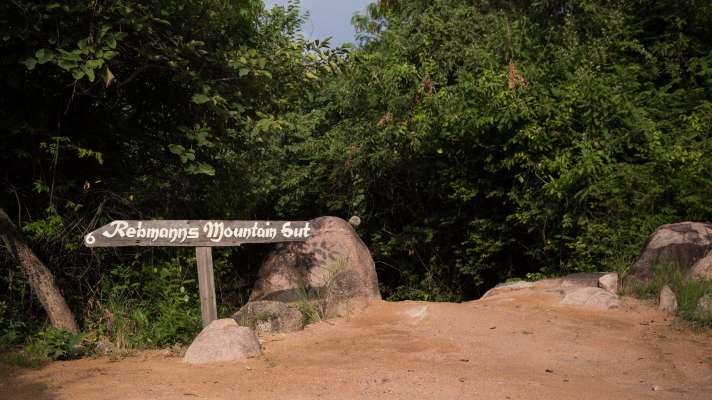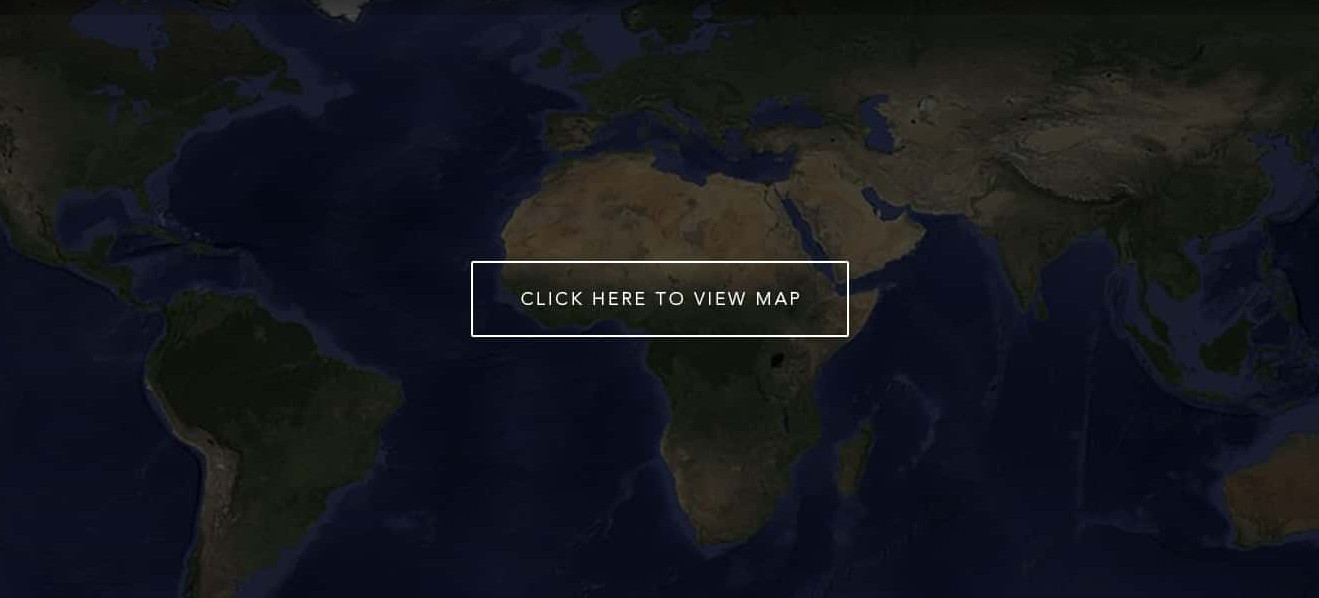Lupita Island
Overview
Lupita Island offers thirteen uniquely crafted cottages, all benefiting from breathtaking lake and mountain views seen through open verandas. Dotted among a tropical forest of indigenous trees, the property strives to leave as little mark on the natural environment as possible. Designed for comfort and privacy, each cottage features a large living area, well-stocked bar, spacious bedchamber, private plunge pool, sun deck, ho ...
Overview
Lupita Island offers thirteen uniquely crafted cottages, all benefiting from breathtaking lake and mountain views seen through open verandas. Dotted among a tropical forest of indigenous trees, the property strives to leave as little mark on the natural environment as possible. Designed for comfort and privacy, each cottage features a large living area, well-stocked bar, spacious bedchamber, private plunge pool, sun deck, hot waterfall shower, and large outside bathtub.
Location
Lupita Island is located in Lake Tanganyika, offering stunning views and a secluded retreat. The island’s peak elevation is 825 meters (2707 feet), with the lake's elevation at 766 meters (2513 feet) above sea level. The distance to the airstrip is 3 miles.
Accommodation
The island features thirteen cottages and two suites:
Cottages: Comfortable and private, featuring large living areas, cozy sofas, Persian rugs, and private plunge pools.
Livingstone and Stanley Suites: Cater to families of up to five, with additional sleeping areas, bathrooms, and the option of private dining.
Amenities: Hot waterfall showers, large outside bathtubs, sun decks, and well-stocked bars.
A butler is on hand to help make your stay unforgettable, attending to all your needs.
Dining
Savor local delicacies and international dishes made with the freshest ingredients. Enjoy meals in the open-air restaurant, by the pool, or in your cottage with butler service. A fully catered beach buffet is also available.
Bar and Lounge
Relax with a refreshing drink in the shade, gazing over the foliage to the sparkling waters of the lake.
Facilities
Swimming Pool: Freshwater pool with a pool bar and a swim-up water bar.
Spa: Offers classic aesthetic treatments with essential oils and trusted massage techniques, with magnificent views of Lake Tanganyika and the neighboring mountains.
Gymnasium: Equipped with machines for casual toning or full-body workouts, with stunning views.
Games Room: Includes a pool table, foosball, table tennis, darts, and board games.
Sandy Bar: Beach bar on the water's edge, offering a relaxing spot to watch the fishermen and enjoy the lake’s beauty.
Boma: Cozy fire pit area for evening gatherings with snacks and drinks.
Experiences
Beach Buffet: Enjoy a fun-filled day on a private beach with a fully catered buffet and drinks.
Local Choir: Interact with local communities and visit traditional African villages.
Kilipi Monastery: Visit the remains of a monastery built around 1890 as part of an anti-slavery campaign.
Helicopter Hire: Take day trips to Katavi National Park, picnic on remote hillsides, or visit Kalambo Falls.
Activities
Kayaking: Explore the islands with two-man kayaks and enjoy beach picnics.
Swimming and Snorkeling: Enjoy the warm shallows and hidden coves teeming with colorful cichlids.
Watersports: Engage in both motorized and non-motorized water activities.
Fishing: Try handline fishing with an expert local fisherman or fish with the latest gear on a speedboat.
Marine Park
Lupita Island and neighboring islands are working toward creating a marine park to protect the fish and allow breeding grounds for rare species. The proposed area is ideal for snorkeling and kayaking.
Island Access
Private Charters: Available to Lupita Island's airstrip in Kipili.
Fast Jet: Operates daily flights between Dar Es Salaam and Mbeya.
Safari Link: Regular services from Arusha and Dar Es Salaam to Ruaha and Katavi, with an optional stop at Kipili for Lupita Island.
Helicopter Hire: Available for a minimum of 20 hours from base to base (Nairobi).
Overview
Lupita Island offers thirteen uniquely crafted cottages, all benefiting from breathtaking lake and mountain views seen through open verandas. Dotted among a tropical forest of indigenous trees, the property strives to leave as little mark on the natural environment as possible. Designed for comfort and privacy, each cottage features a large living area, well-stocked bar, spacious bedchamber, private plunge pool, sun deck, hot waterfall shower, and large outside bathtub.
Location
Lupita Island is located in Lake Tanganyika, offering stunning views and a secluded retreat. The island’s peak elevation is 825 meters (2707 feet), with the lake's elevation at 766 meters (2513 feet) above sea level. The distance to the airstrip is 3 miles.
Accommodation
The island features thirteen cottages and two suites:
Cottages: Comfortable and private, featuring large living areas, cozy sofas, Persian rugs, and private plunge pools.
Livingstone and Stanley Suites: Cater to families of up to five, with additional sleeping areas, bathrooms, and the option of private dining.
Amenities: Hot waterfall showers, large outside bathtubs, sun decks, and well-stocked bars.
A butler is on hand to help make your stay unforgettable, attending to all your needs.
Dining
Savor local delicacies and international dishes made with the freshest ingredients. Enjoy meals in the open-air restaurant, by the pool, or in your cottage with butler service. A fully catered beach buffet is also available.
Bar and Lounge
Relax with a refreshing drink in the shade, gazing over the foliage to the sparkling waters of the lake.
Facilities
Swimming Pool: Freshwater pool with a pool bar and a swim-up water bar.
Spa: Offers classic aesthetic treatments with essential oils and trusted massage techniques, with magnificent views of Lake Tanganyika and the neighboring mountains.
Gymnasium: Equipped with machines for casual toning or full-body workouts, with stunning views.
Games Room: Includes a pool table, foosball, table tennis, darts, and board games.
Sandy Bar: Beach bar on the water's edge, offering a relaxing spot to watch the fishermen and enjoy the lake’s beauty.
Boma: Cozy fire pit area for evening gatherings with snacks and drinks.
Experiences
Beach Buffet: Enjoy a fun-filled day on a private beach with a fully catered buffet and drinks.
Local Choir: Interact with local communities and visit traditional African villages.
Kilipi Monastery: Visit the remains of a monastery built around 1890 as part of an anti-slavery campaign.
Helicopter Hire: Take day trips to Katavi National Park, picnic on remote hillsides, or visit Kalambo Falls.
Activities
Kayaking: Explore the islands with two-man kayaks and enjoy beach picnics.
Swimming and Snorkeling: Enjoy the warm shallows and hidden coves teeming with colorful cichlids.
Watersports: Engage in both motorized and non-motorized water activities.
Fishing: Try handline fishing with an expert local fisherman or fish with the latest gear on a speedboat.
Marine Park
Lupita Island and neighboring islands are working toward creating a marine park to protect the fish and allow breeding grounds for rare species. The proposed area is ideal for snorkeling and kayaking.
Island Access
Private Charters: Available to Lupita Island's airstrip in Kipili.
Fast Jet: Operates daily flights between Dar Es Salaam and Mbeya.
Safari Link: Regular services from Arusha and Dar Es Salaam to Ruaha and Katavi, with an optional stop at Kipili for Lupita Island.
Helicopter Hire: Available for a minimum of 20 hours from base to base (Nairobi).

